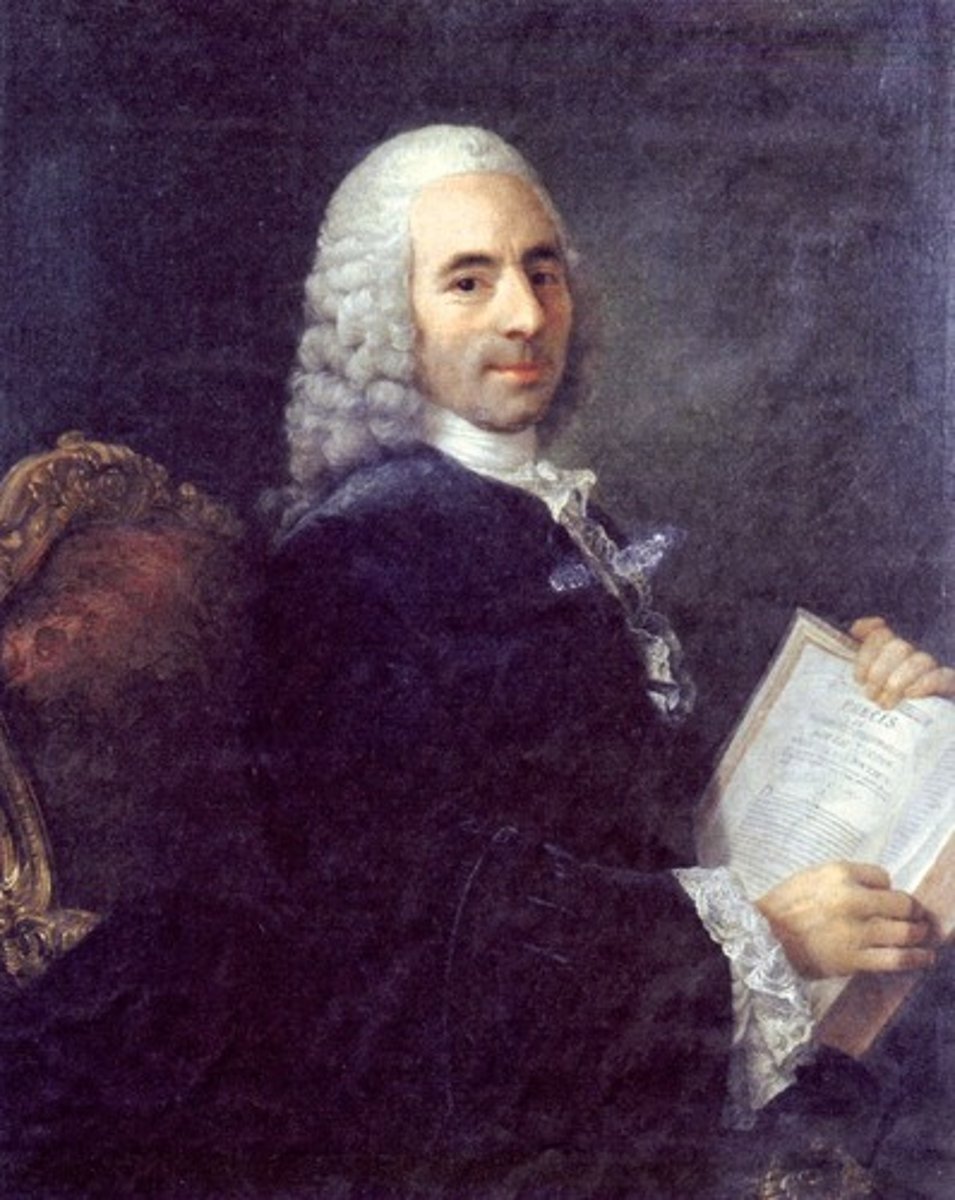Unit 4: The Age of Reason - Scientific Revolution & the Enlightenment (ID's)
1/38
There's no tags or description
Looks like no tags are added yet.
Name | Mastery | Learn | Test | Matching | Spaced |
|---|
No study sessions yet.
39 Terms
Scientific Revolution
16th and 17th century movement that replaced religion as the explanation of the educated for the occurrences in the physical world, the human body, and the universe.
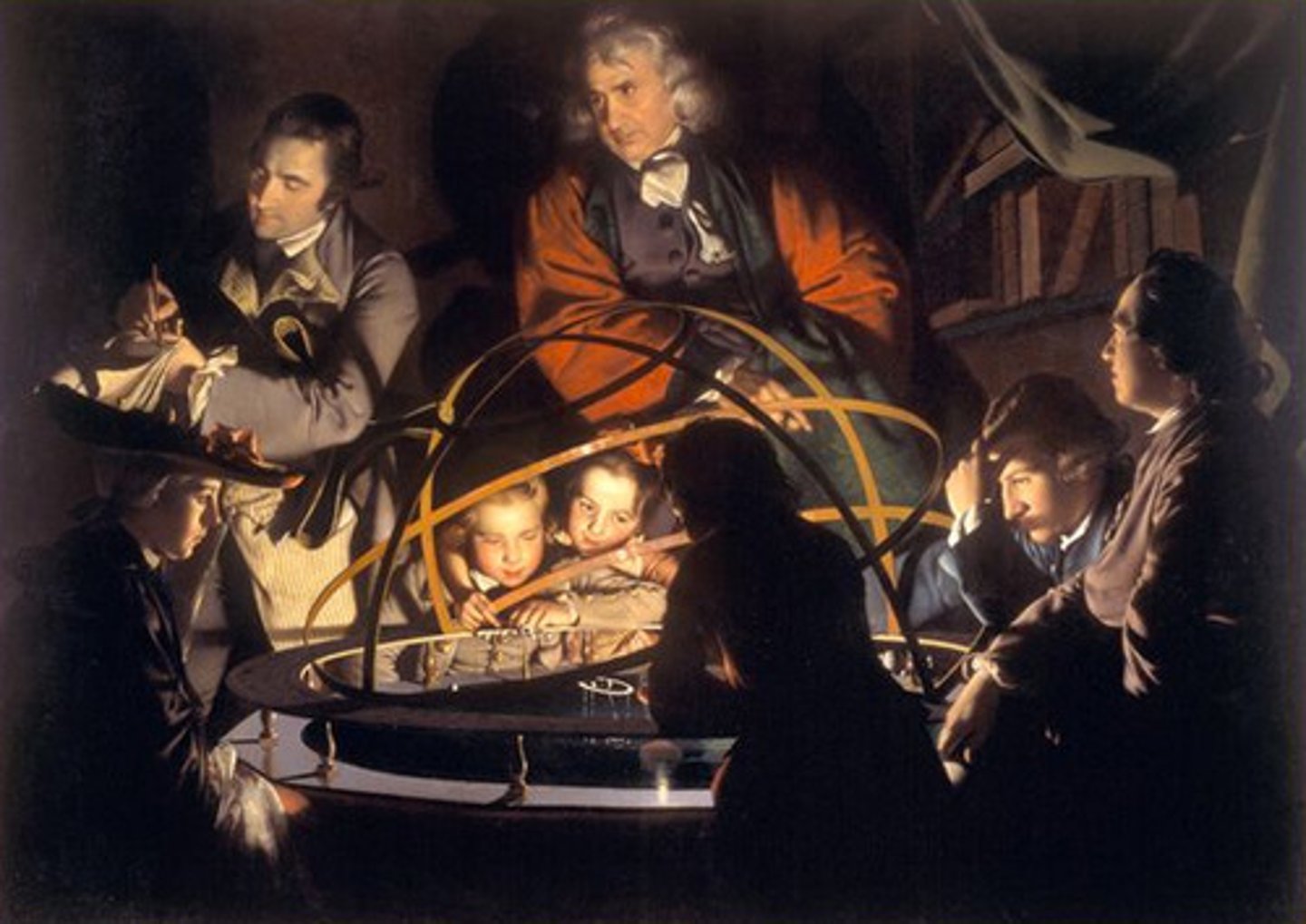
Aristotelian-Ptolemaic theory of the universe
The geocentric view of the universe that prevailed from the fourth century B.C. to the sixteenth and seventeenth centuries and supported with church teachings and Scriptures.
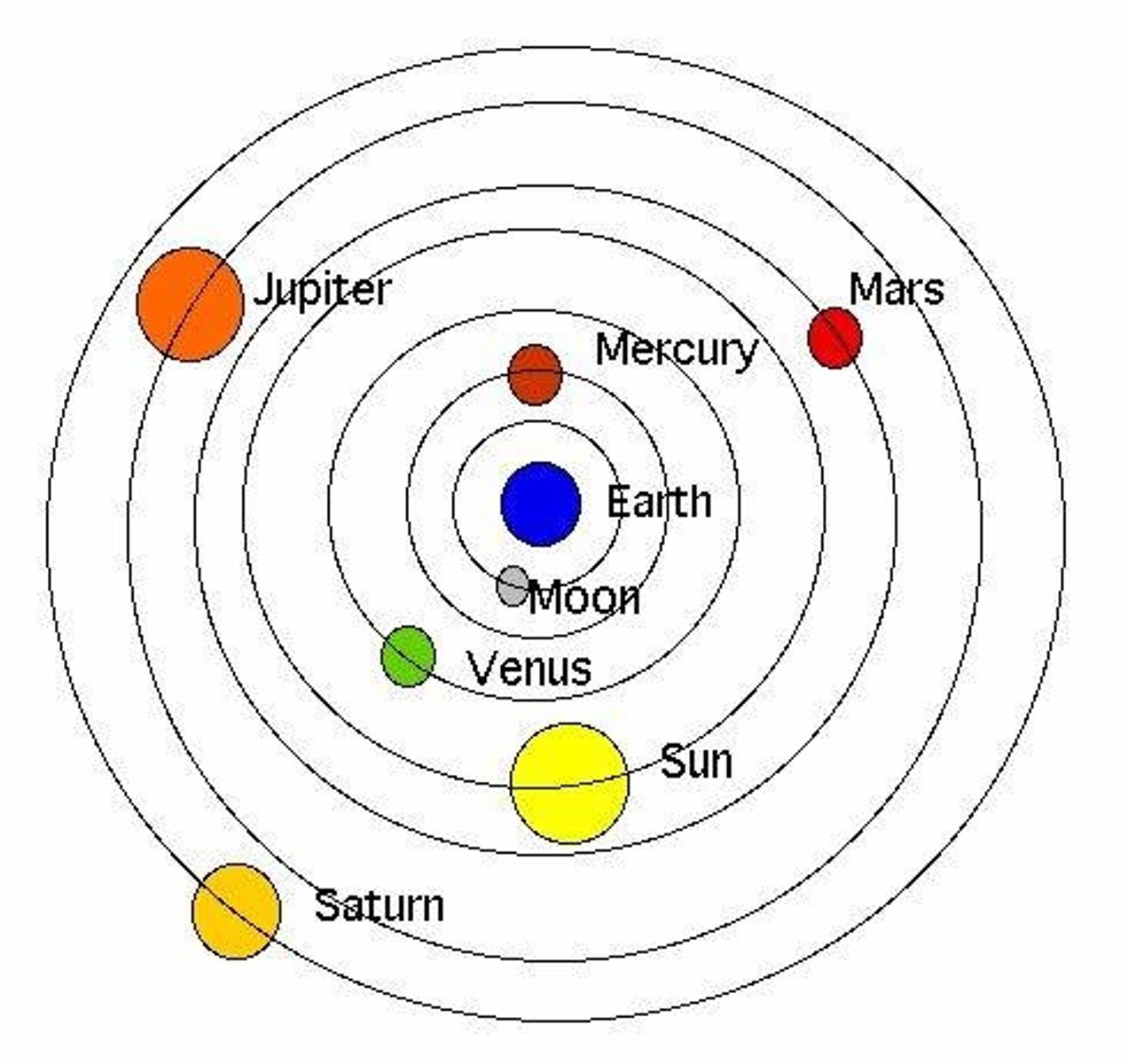
Nicolaus Copernicus (1473-1543)
Polish clergyman who wrote On the Revolution of Heavenly Spheres, published in 1543. Questioned Aristotle's view of the universe of the cosmos with the heliocentric theory.
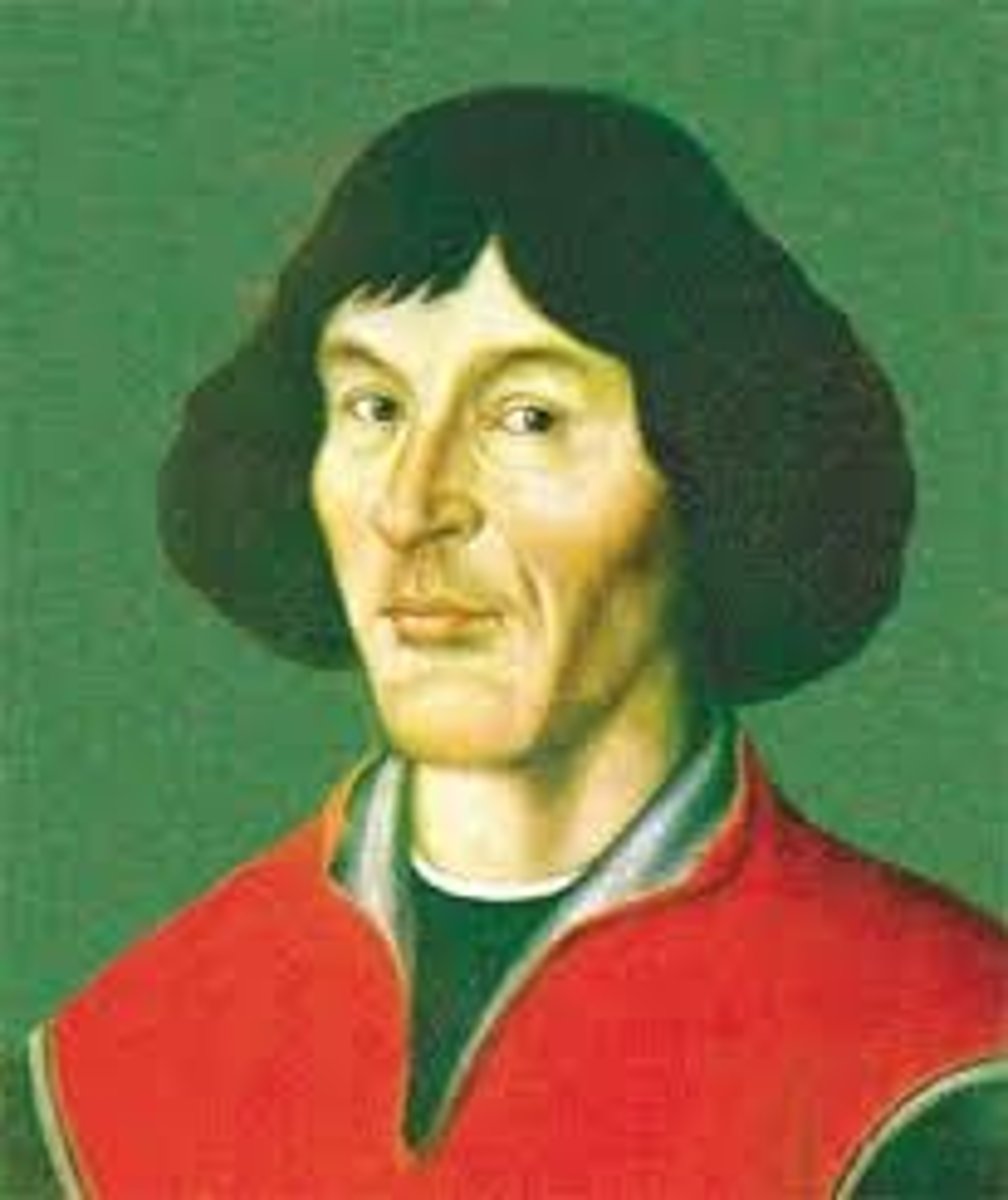
Johannes Kepler (1571-1630)
Reworked Copernicus's Heliocentric theory and Brahe's observations to include elliptical orbits of planets using mathematical theories as well as observations from his practice of astrology.
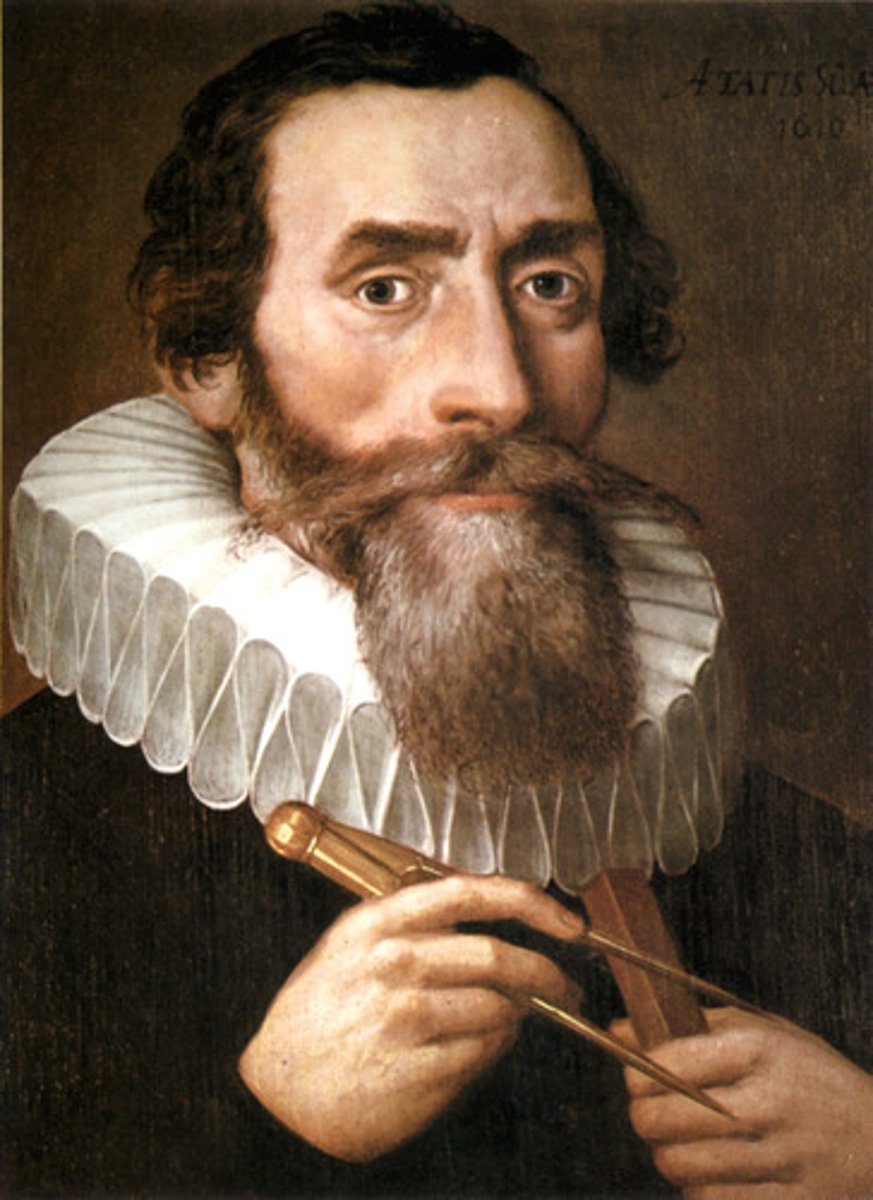
Galileo (1564-1642)
Italian astronomer who created a modern experimental method. Discovered Jupiter's 4 moons using the telescope. Tried for heresy and forced to recant.
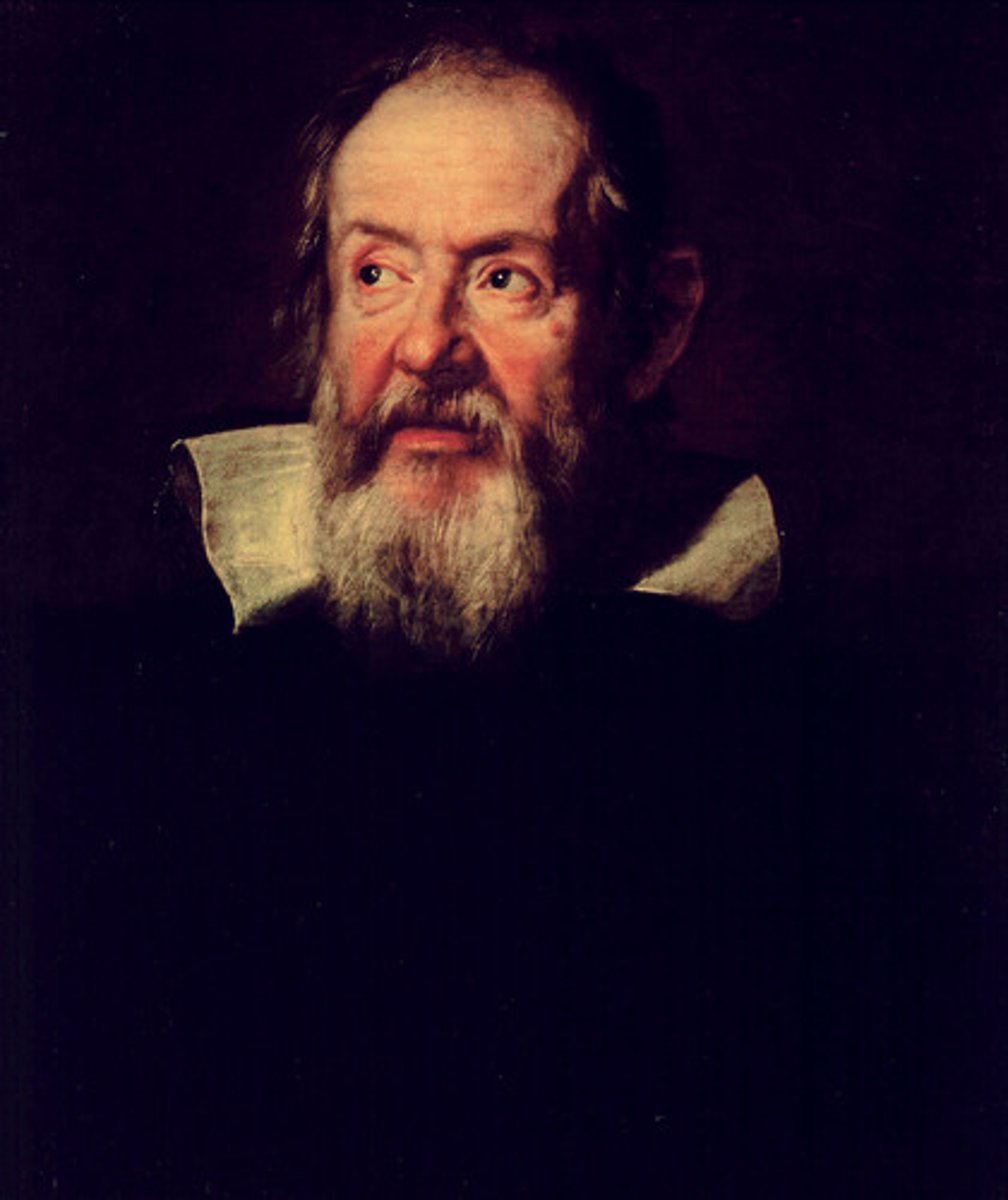
Isaac Newton (1642-1727)
English scientist who formulated the law of gravitation that posited a universe operating in accord with natural law. Did not see science and religion in conflict, and practiced alchemy. Principia Mathematica 1687.
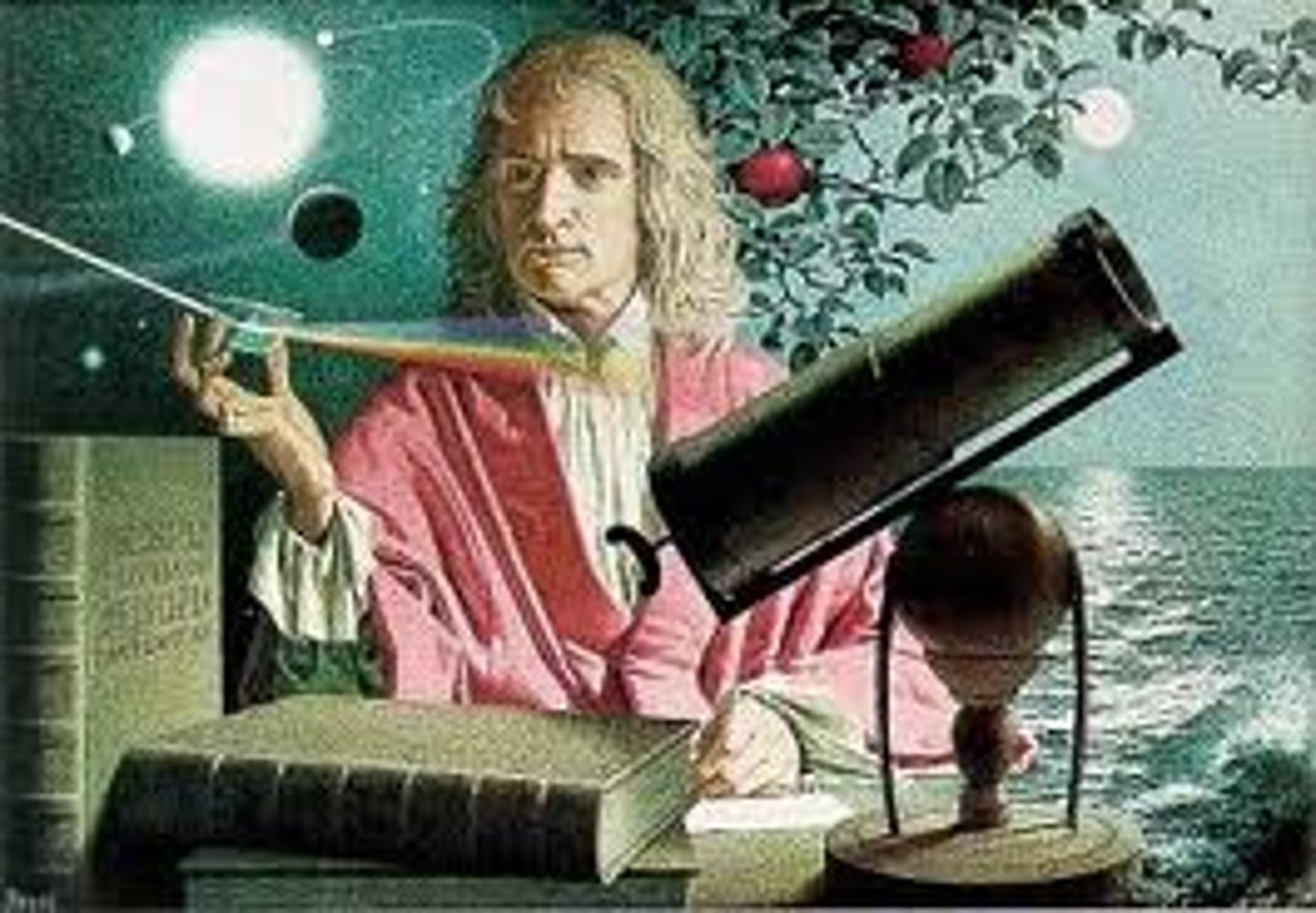
Humoral theory
Ancient Roman theory, posited by Galen, that mental and physical health were governed by four bodily products, or humors, (blood, phlegm, bile, black bile). The theory was accepted until the Scientific Revolution, and beyond in the case of women's anatomy.
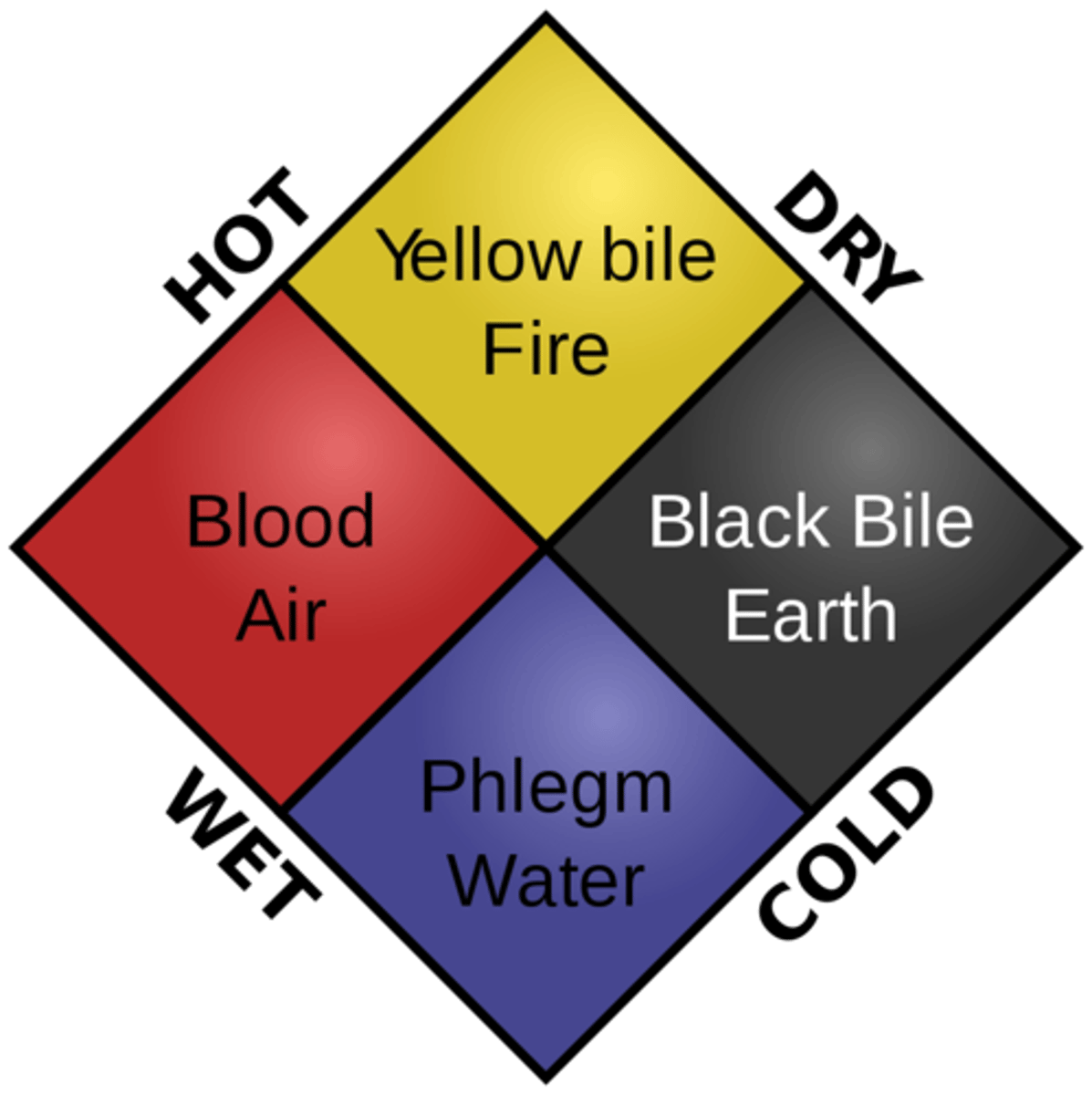
Vesalius (1514-1564)
Dutch (still under the control of Spain) anatomist who broke with Church tradition and studied anatomy through dissection.
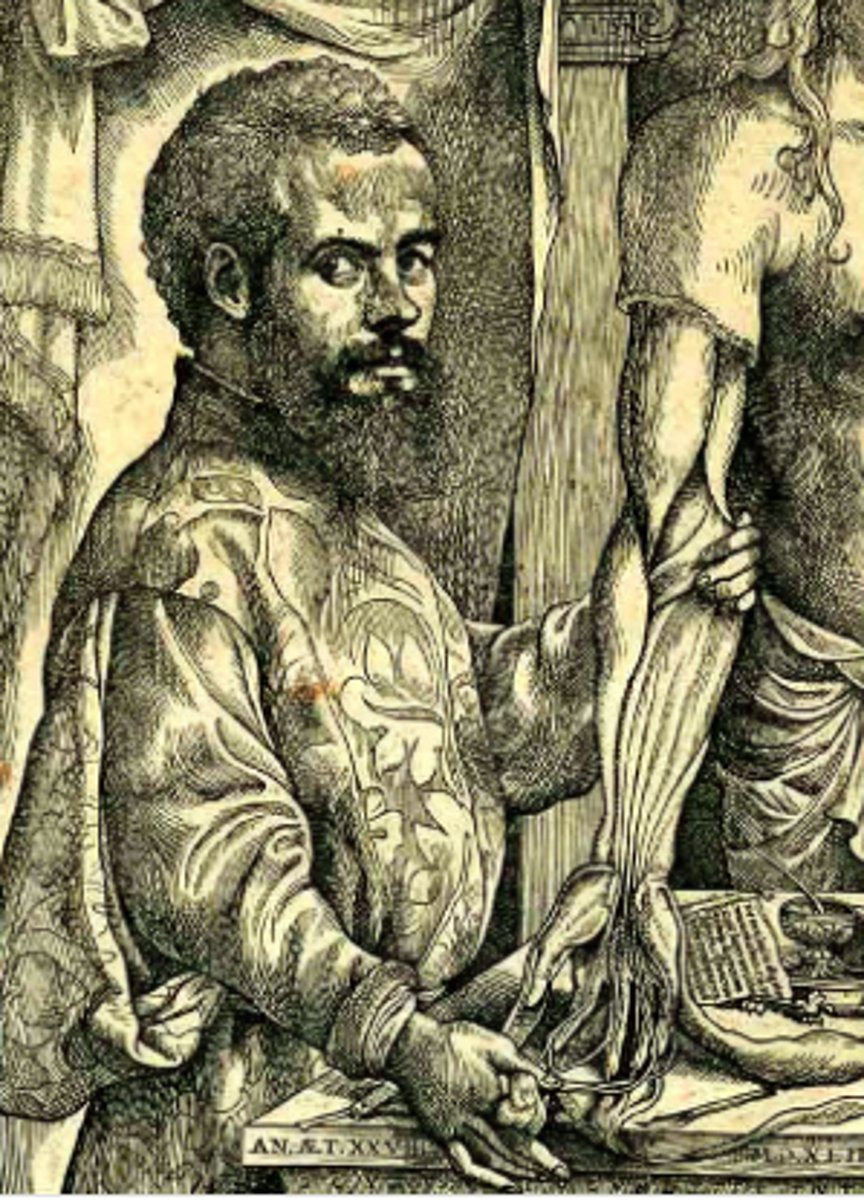
William Harvey (1578-1657)
English physician who discovered the workings of the circulatory system and developed the idea of integrated systems in the body, challenging Galen's ideas of human anatomy.
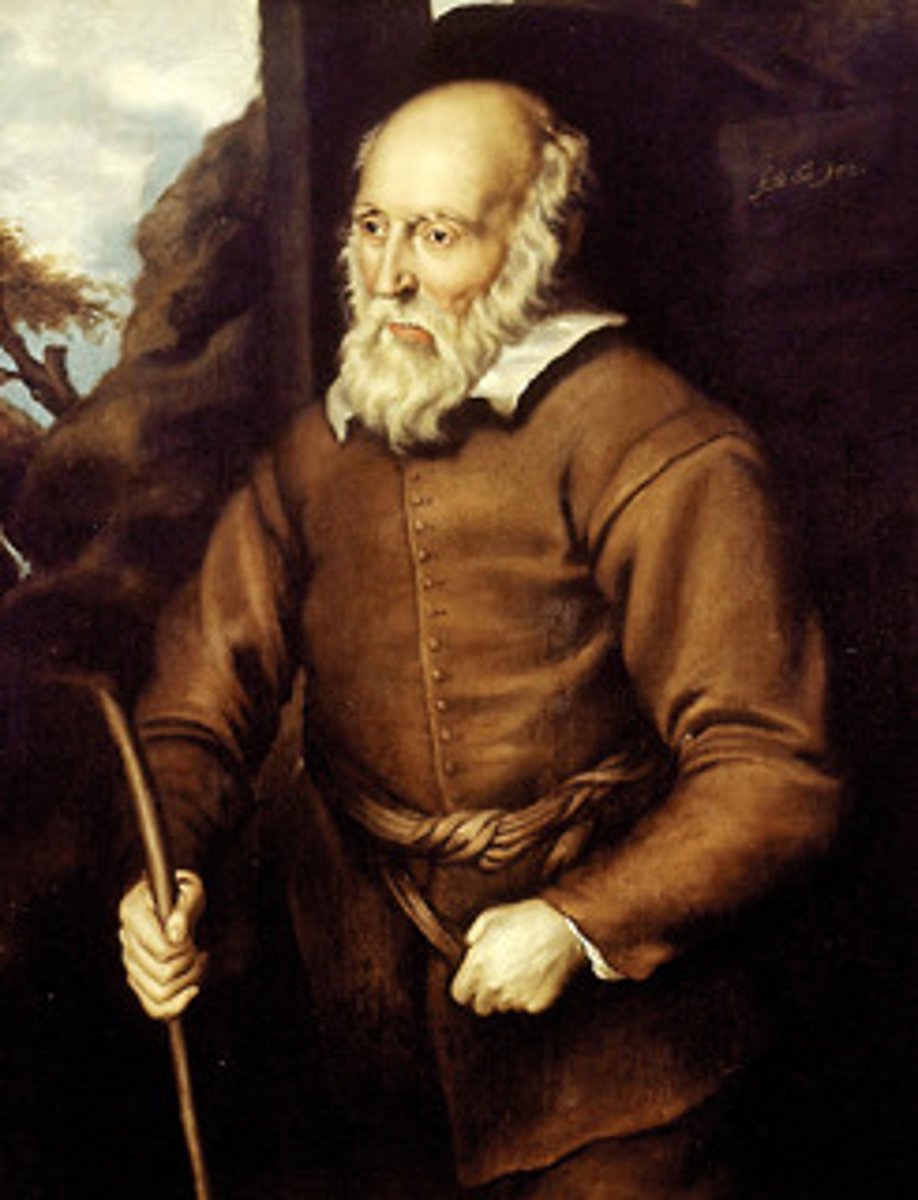
Lady Mary Wortley Montagu (1689-1762)
Early advocate for the inoculation of smallpox which she had witnessed in the Ottoman Empire, which reduced smallpox mortality. Along with agricultural productivity and the decrease of the plague, population levels rose during the 18th century.
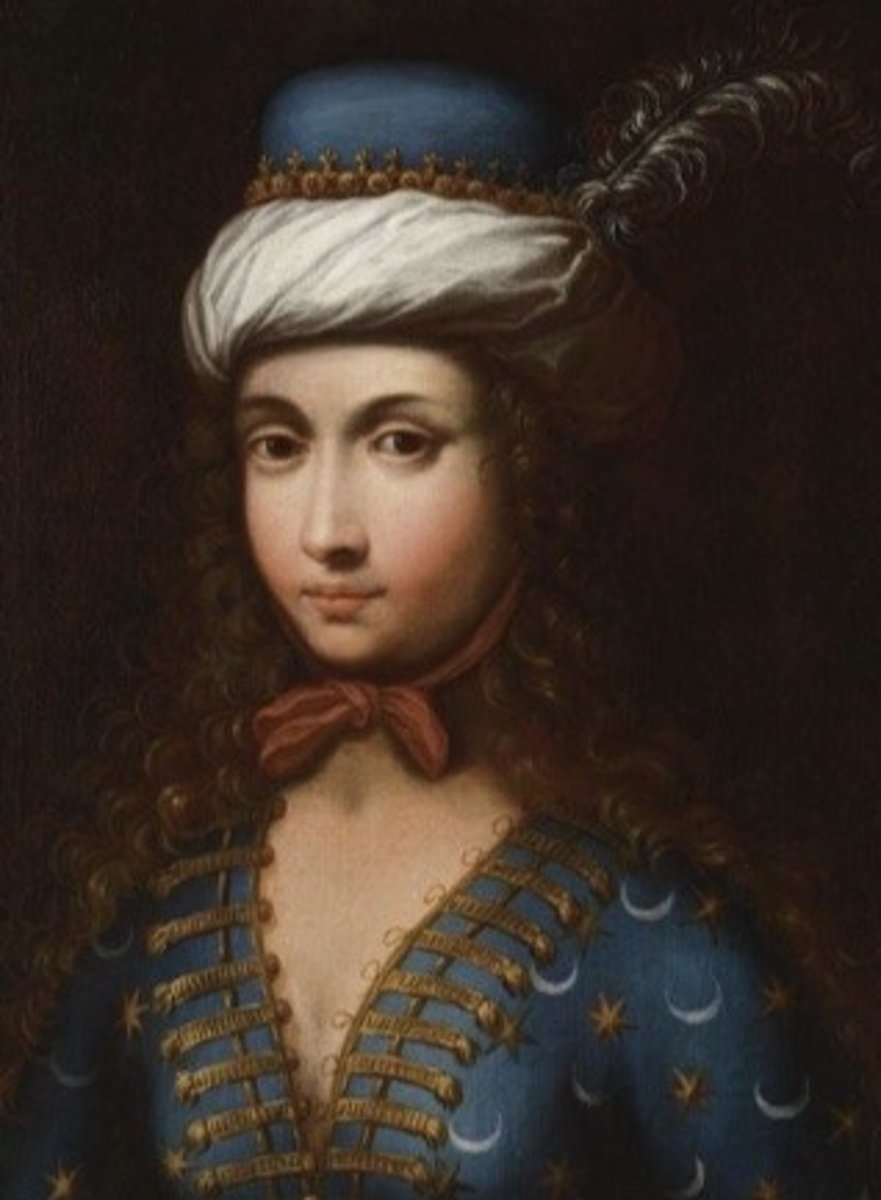
Francis Bacon (1561-1626)
English inductive thinker who stressed experimentation and math in arriving at truth. Inductive learning uses a set of facts and induces a hypothesis or theory. Inductive and deductive reasoning create the scientific method.
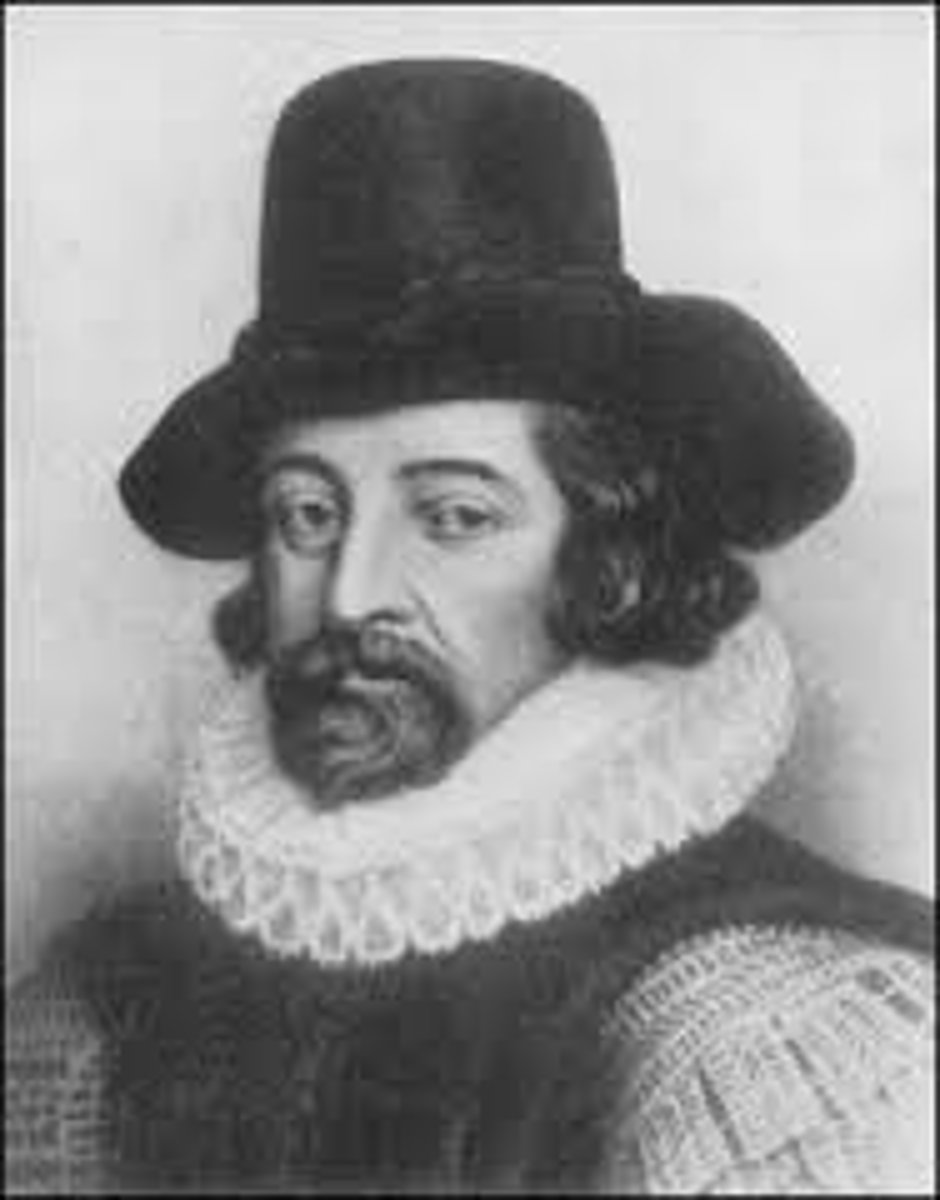
Rene Descartes (1596-1650)
Deductive thinker whose famous saying cogito, ergo sum ("I think, therefore I am") challenged the notion of truth as being derived from tradition and Scriptures. Stressed man's ability to think and use experimentation and math to find truth. Advocated deductive reasoning where the thinker moves from theory to facts that will support the theory. Inductive and deductive reasoning create the scientific method.
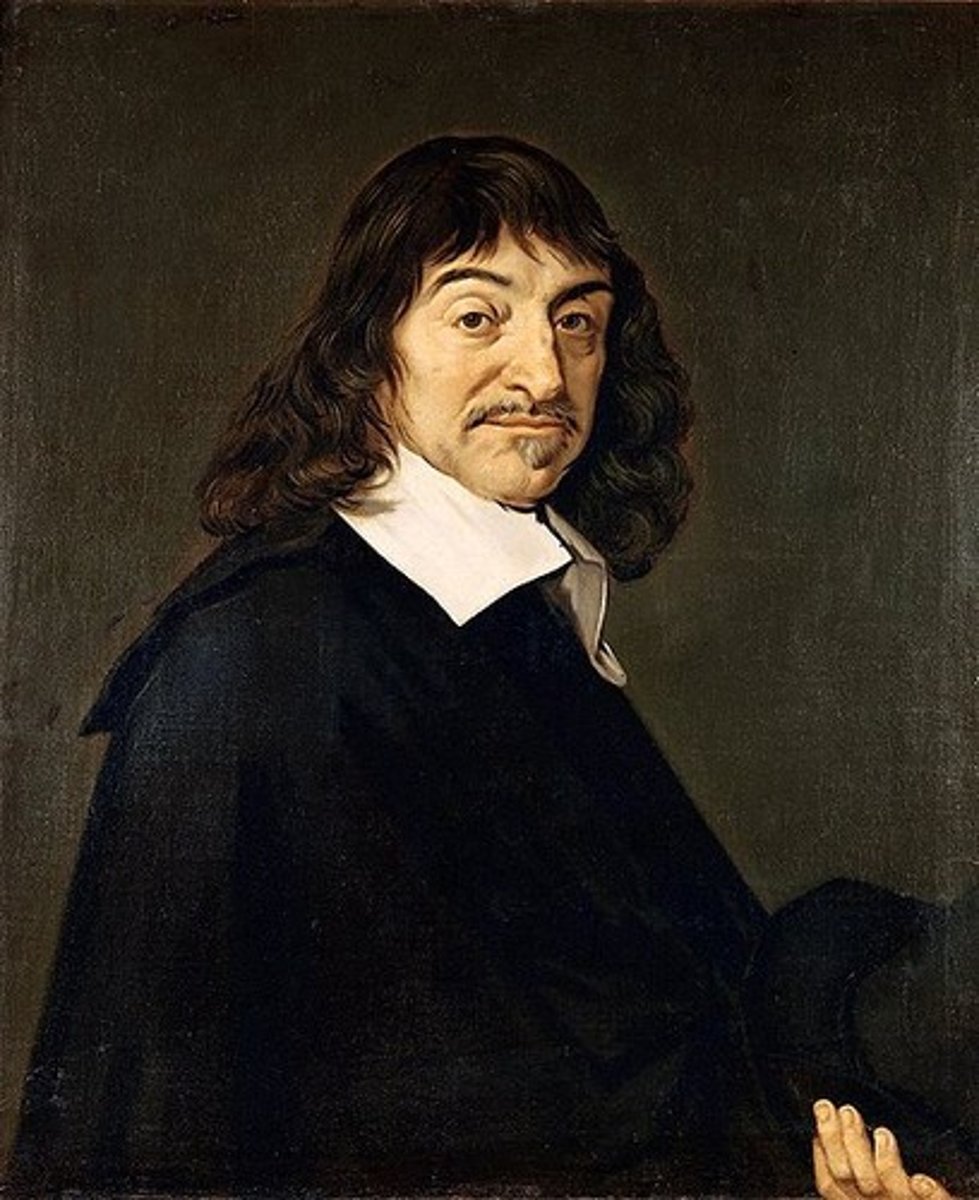
Royal Society
Organization of English scientists patronized by the government, chartered by Charles II in 1660. Purpose was to conduct experiments and discuss scientific advancements. Similar societies in Denmark, Prussia, Russia, France, Netherlands.
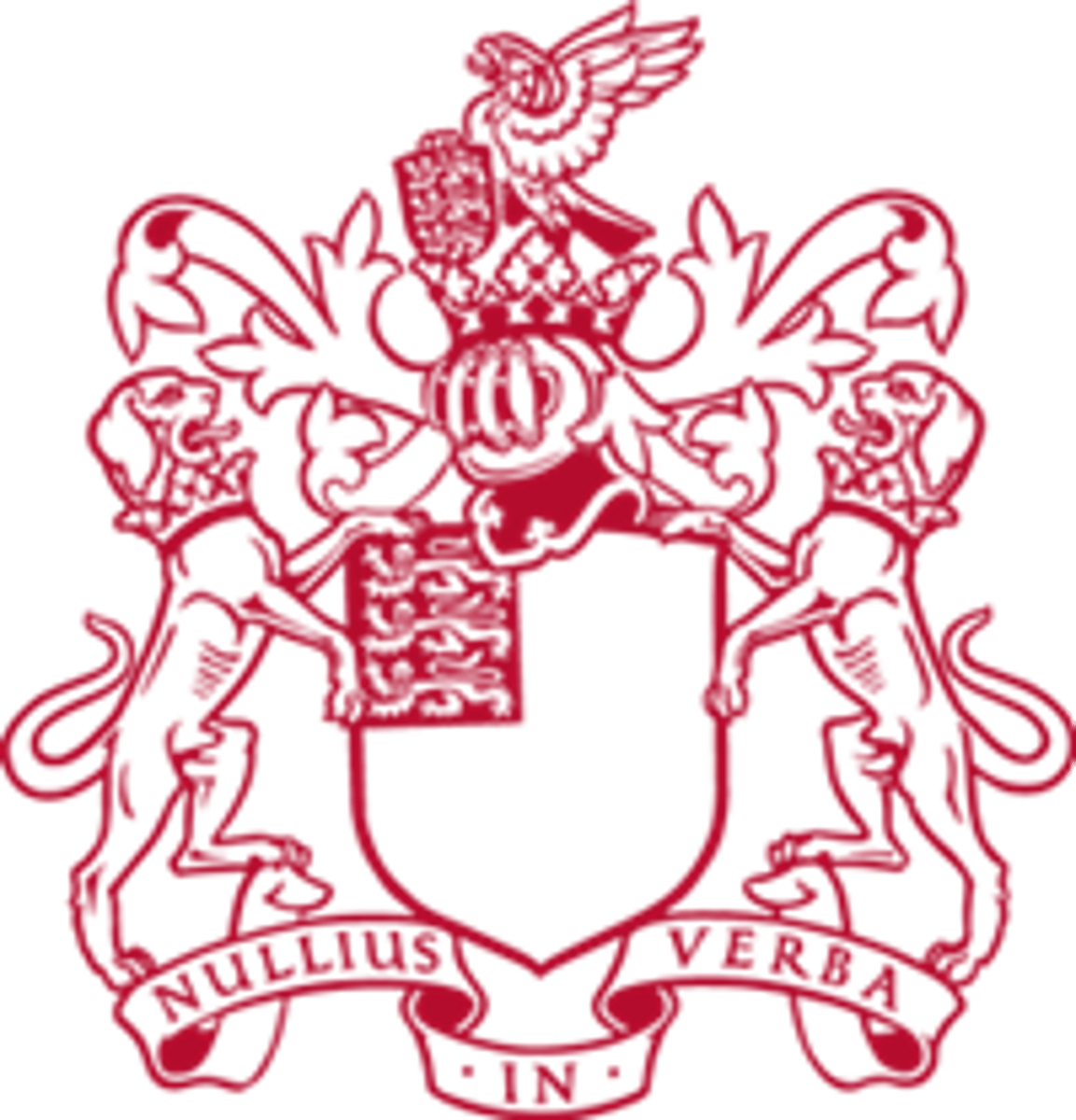
Enlightenment (1700-1800)
The intellectual revolution of the eighteenth century in which the philosophes stressed empiricism, skepticism, human reason, rationalism, and classical sources of knowledge, challenging the prevailing patterns of thought with respect to social order, government, and faith. Ideas were debated in coffeehouses, salons, and lending libraries.
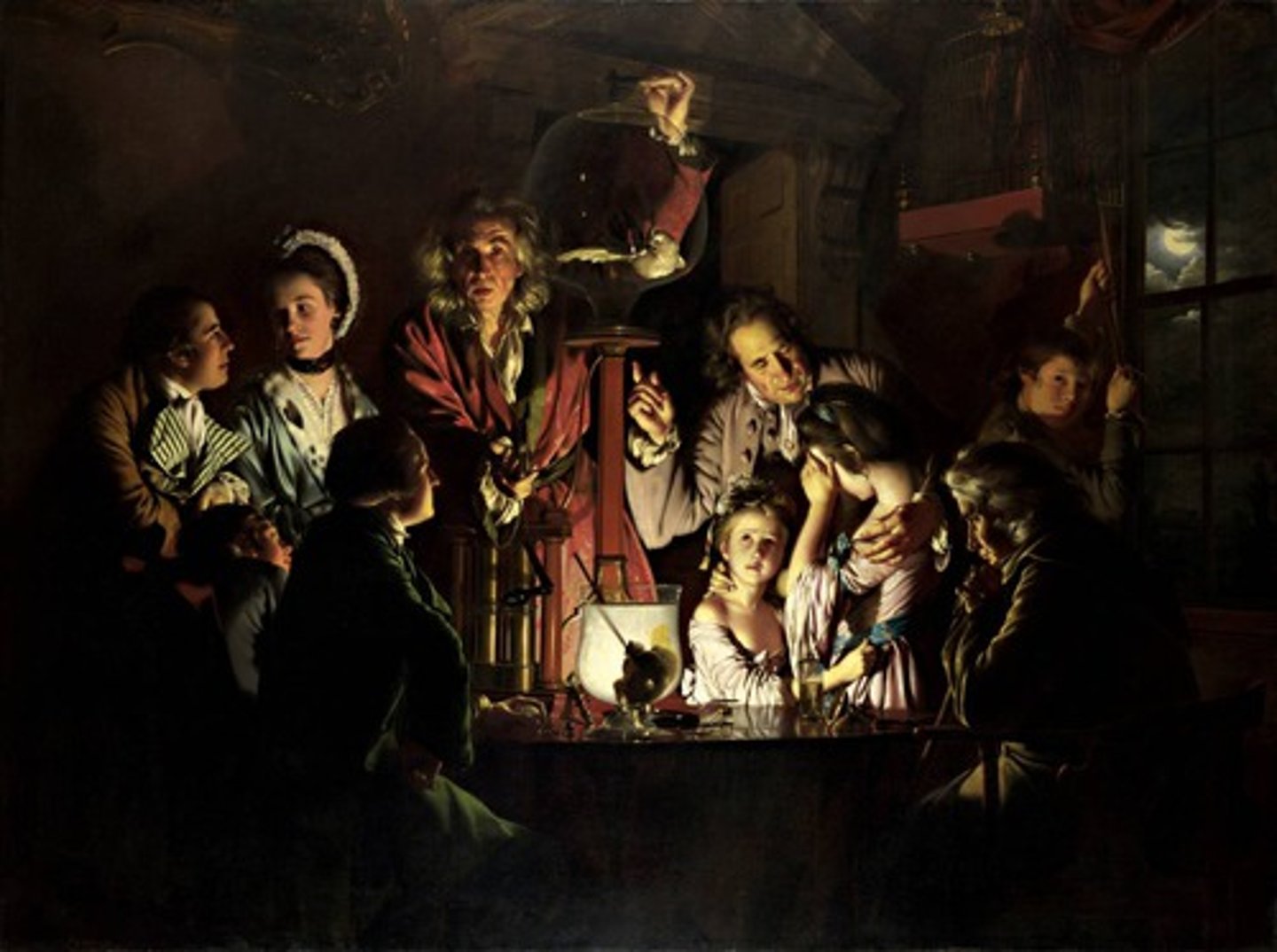
Deism
The belief that God has created the universe and set it in motion to operate like clockwork. God is literally in the wings watching the show go on as humans forge their own destiny through free will. Belief that God was "Watchmaker of the Universe," challenging the traditional belief that God actively intervenes in human affairs.
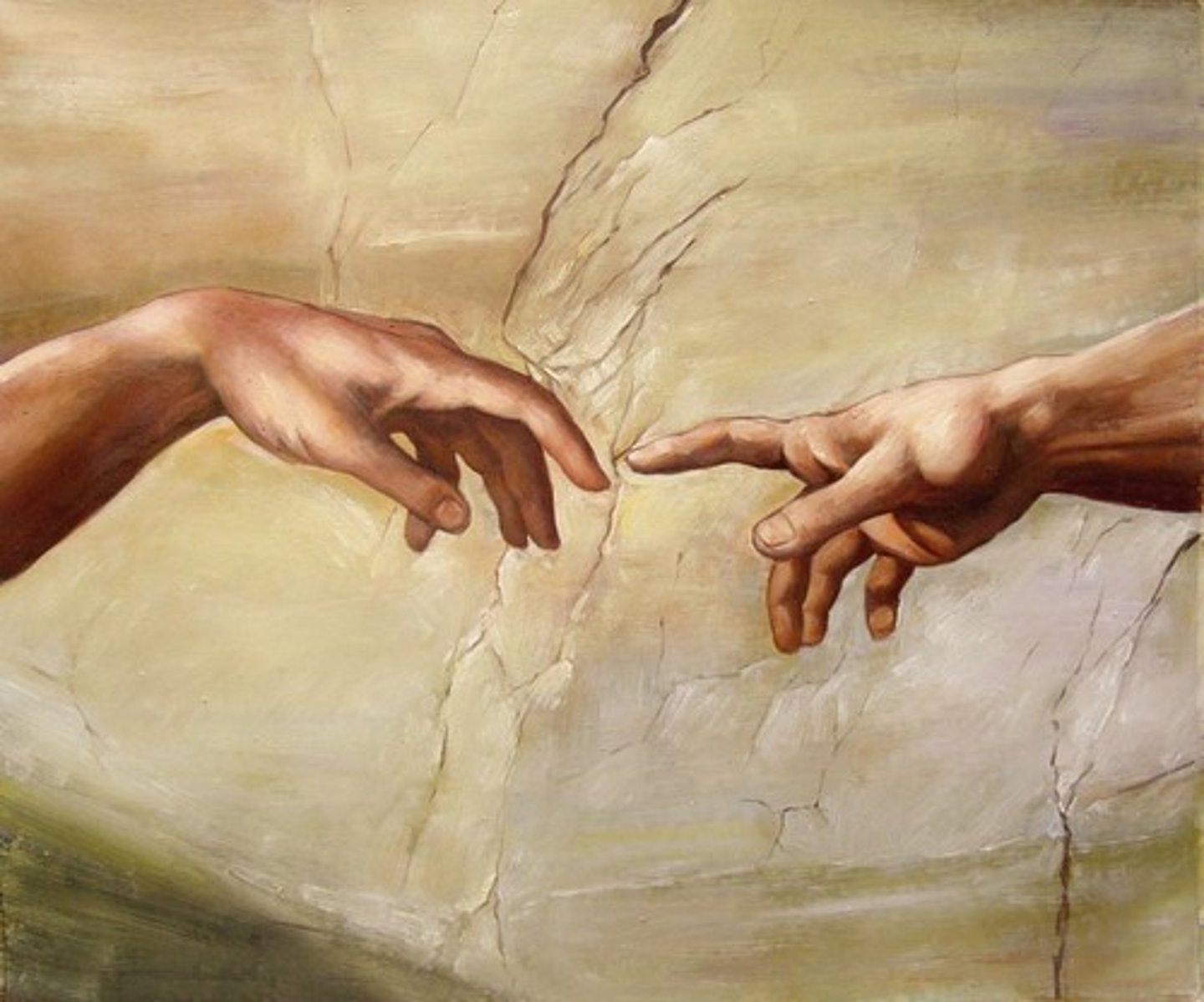
Skepticism
Enlightenment belief advocated by Frenchman Pierre Bayle in the early 1700s and Scotsman David Hume in the later 1700s, who opposed the postulation of final truths. Skepticism advocates for the limits of reason in finding truth and celebrating emotion and experiences in human decision-making.
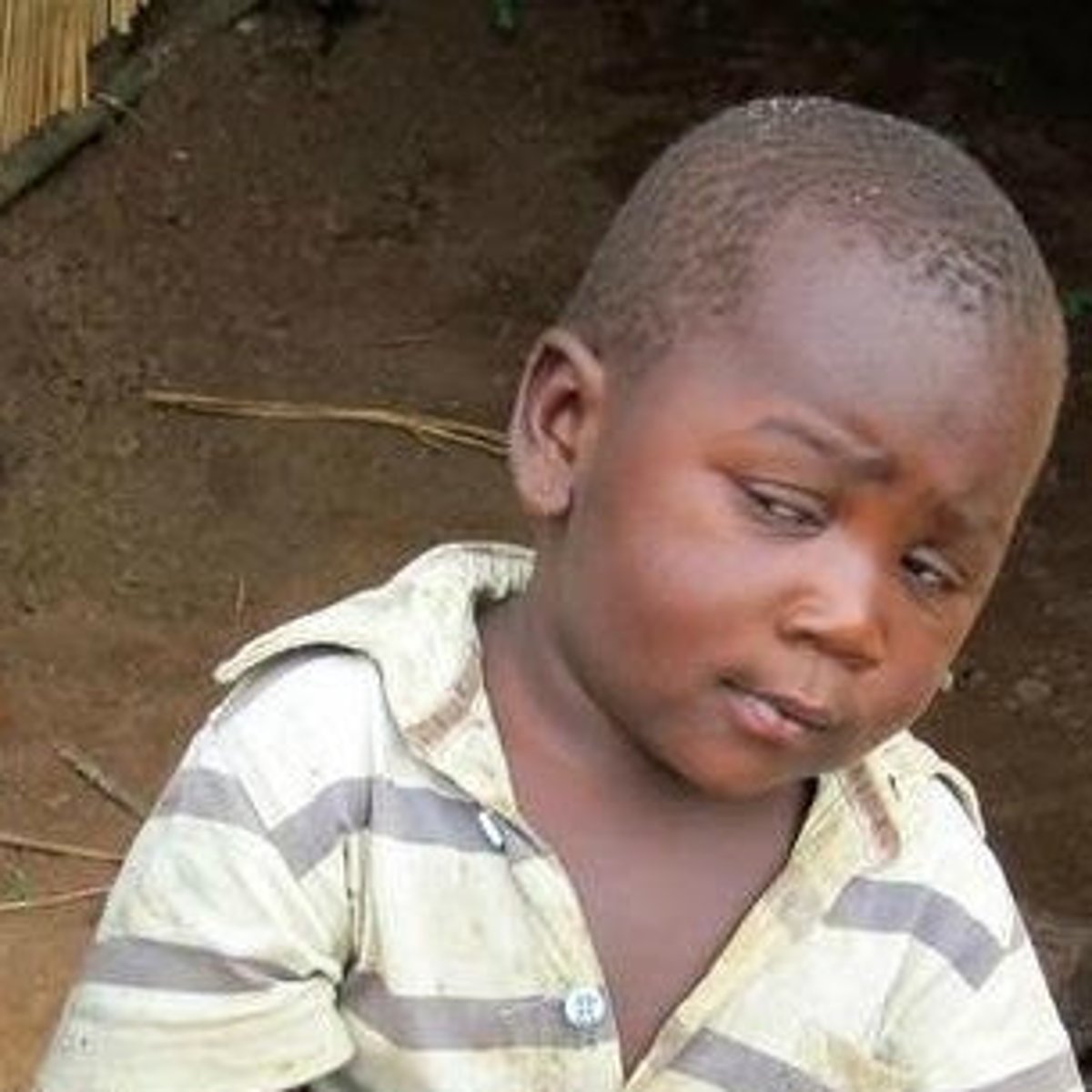
Atheism
Belief that there is no deity, advocated by Baron Paul d'Holbach, who expanded challenges to traditional authorities in the later Enlightenment in his work System of Nature, which explained the world through science without a religious component. His extreme views lost the support of more moderate philosophes.
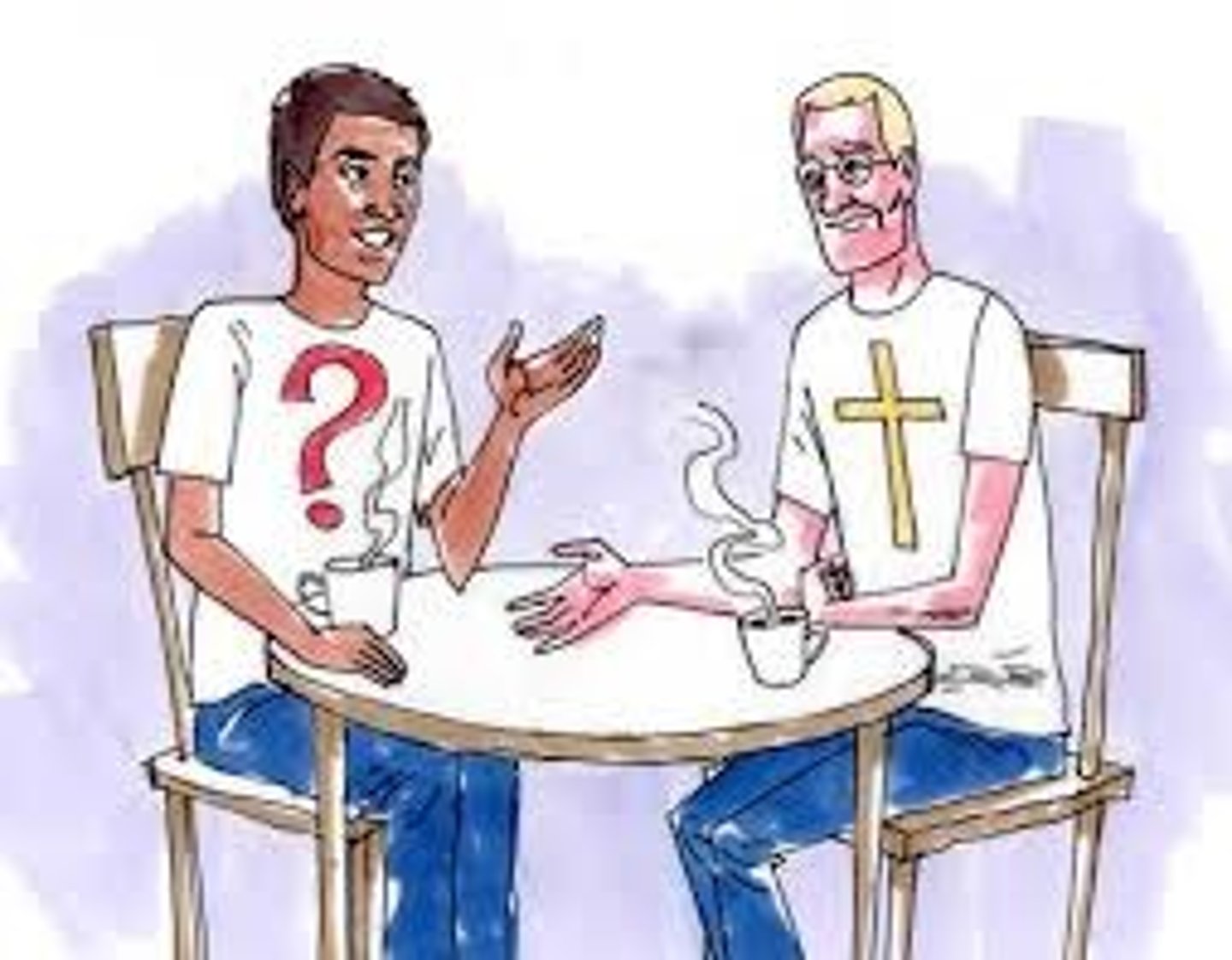
Methodism
British religious revival movement led by John Wesley which focused on charity and service to the poor, but done voluntarily, as religion was viewed increasingly as a matter of private rather than public concern.
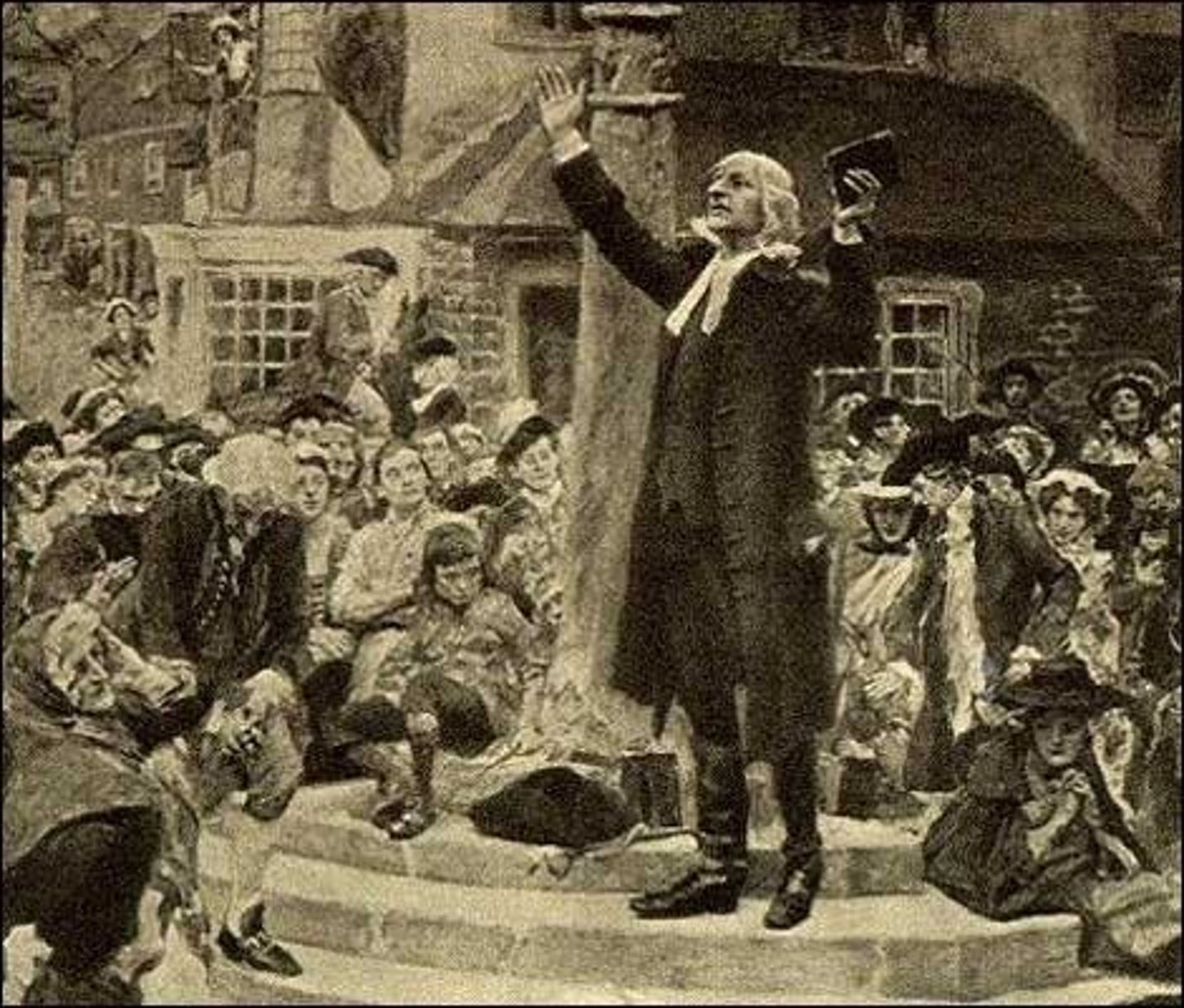
John Locke (1632-1704)
Political theorist who defended the Glorious Revolution and conceived a society composed of individuals driven by self-interest and argued that the state originated with the consent of the governed rather than in divine right or tradition.
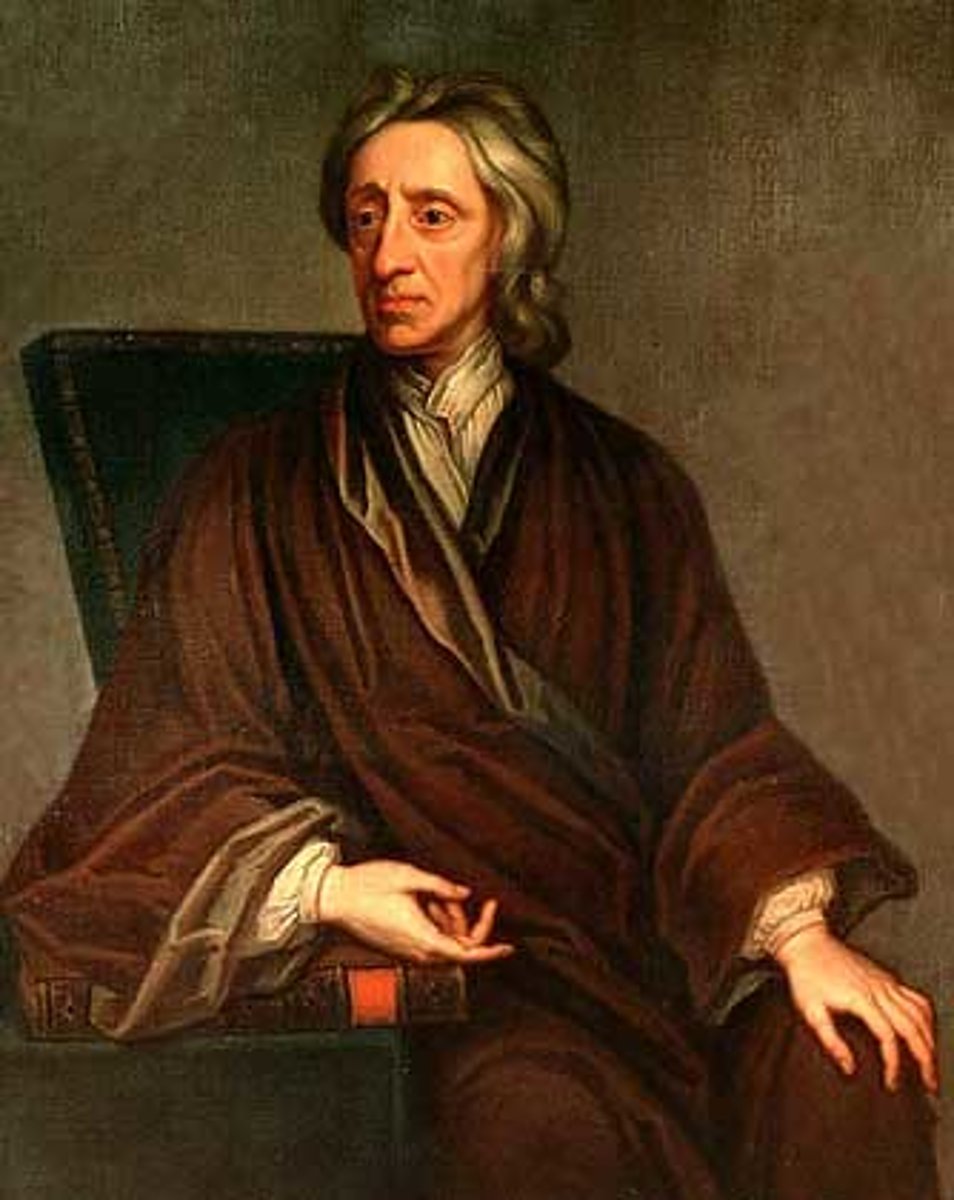
Voltaire (1694-1778)
French, perhaps the greatest Enlightenment philosopher, applied principles of the Scientific Revolution to society, which led him to believe in deism. Argued for tolerance, reason, limited government, and free speech. Believed enlightened despotism best form of government.
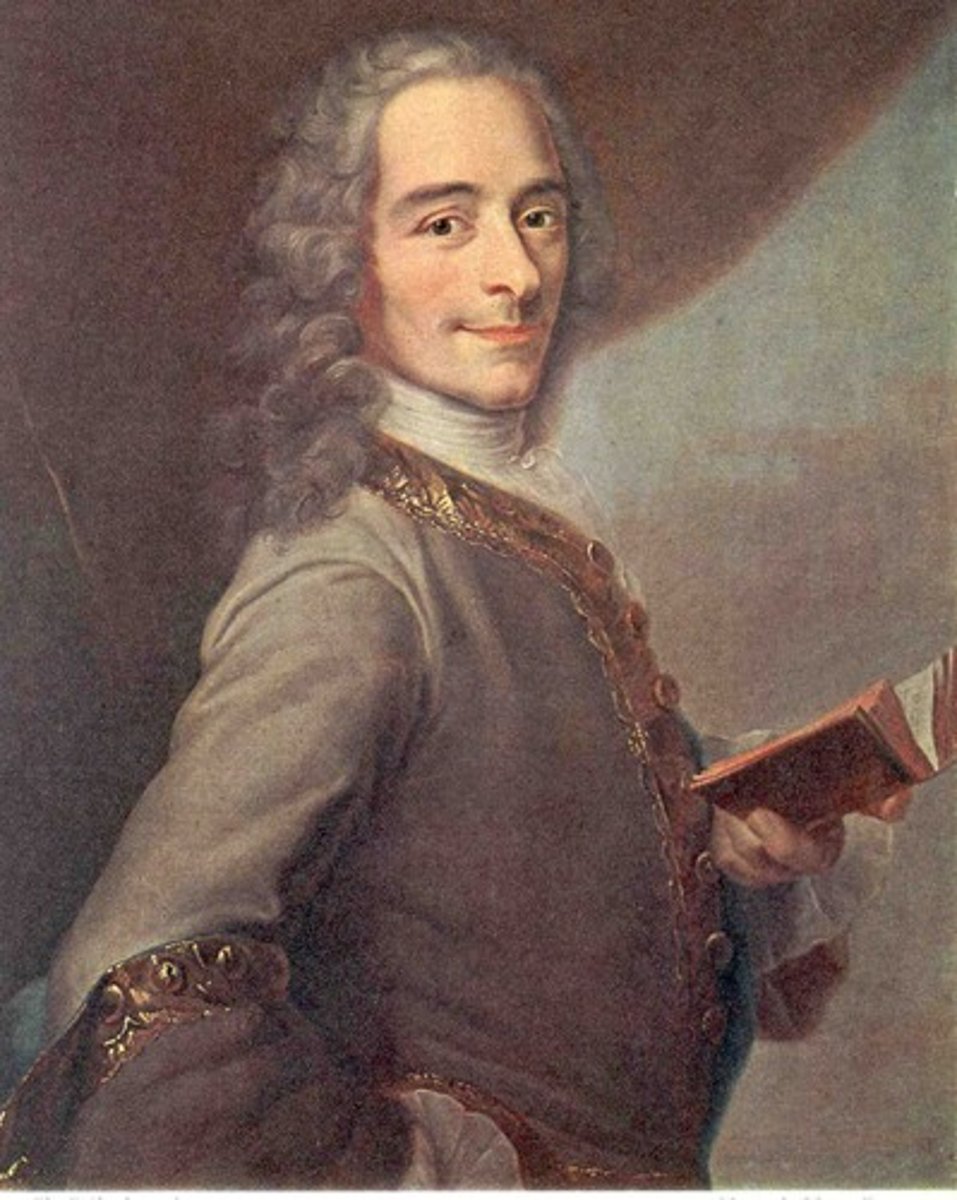
Denis Diderot (1713-1784)
Editor of the Encyclopedia, 28 volume set of collected knowledge of the era, which applied principles of the Scientific Revolution to society and human institutions; patronized by Catherine the Great of Russia when censored in France.
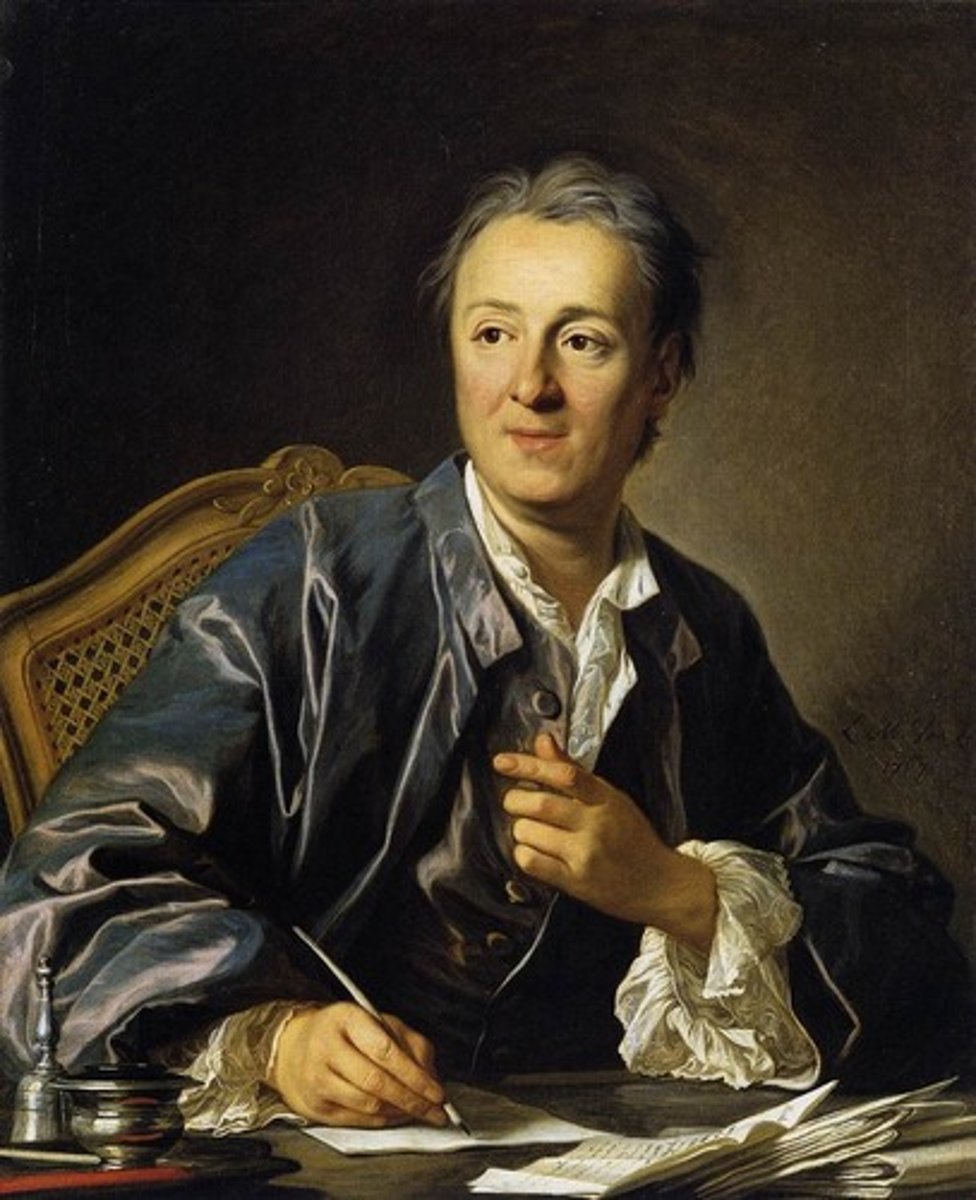
Baron de Montesquieu (1689-1756)
French philosophe who used scientific principles to advocate for separation of powers. Observed that form of government varies according to climate, illustrating that Europeans were increasingly exposed to peoples outside of Europe.
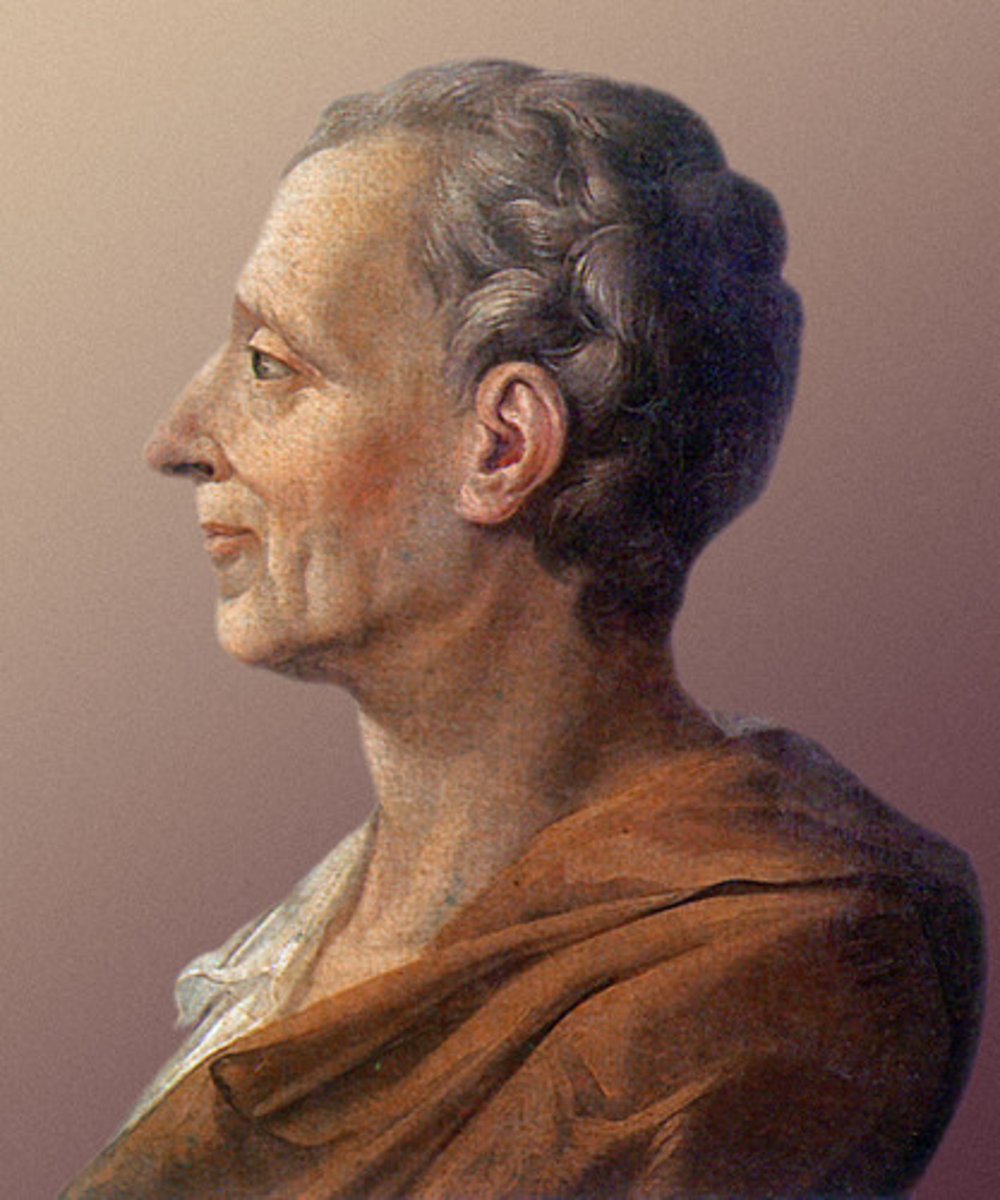
Jean-Jacques Rousseau (1712-1778)
He wrote The Social Contract suggesting reform of the political system with a decentralized government, getting man close to his natural state of a "noble savage," uncorrupted by society. He questioned the exclusive reliance on reason and emphasized the role of emotions in the moral improvement of self and society. He also encouraged parents to nurture children, who were closer to this desired natural state, instead of forcing rationalism on them.
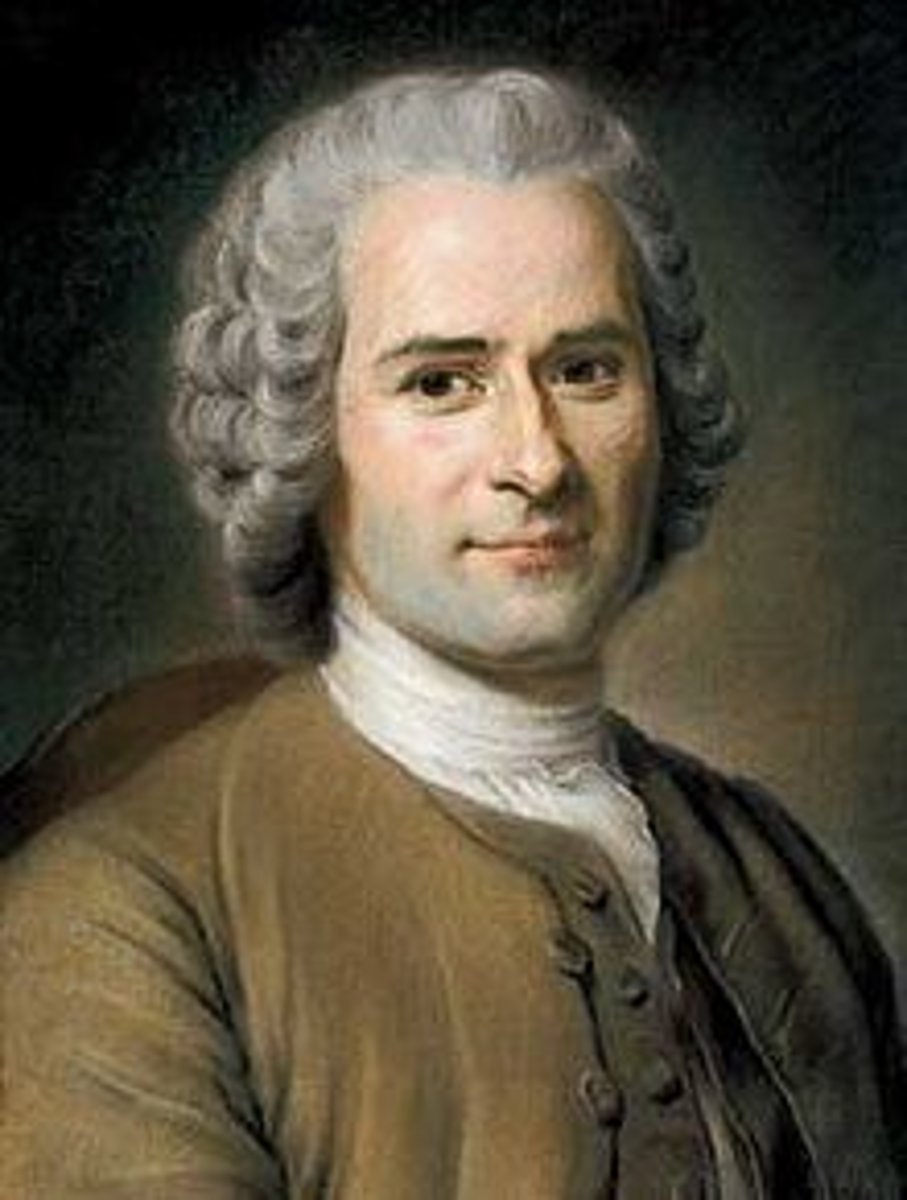
Cesare Beccaria (1738-1794)
Wrote On Crimes and Punishments with basic laws of justice based on reason, Including equality before the law; opposed death penalty, influenced Enlightened Despots.
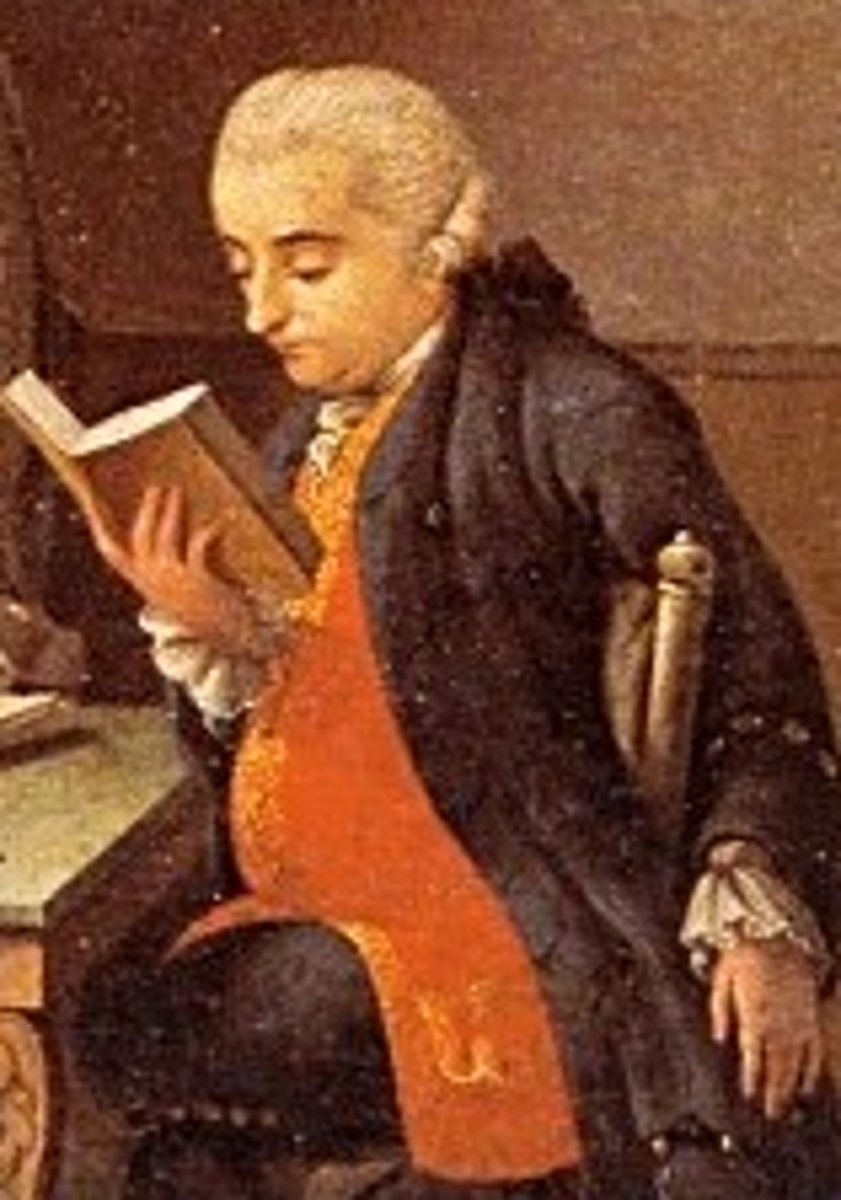
Mary Wollstonecraft (1759-1797)
English advocate for women's rights who argued that women were not naturally inferior to men or less rational, as Rousseau had suggested, but had less educational opportunity.
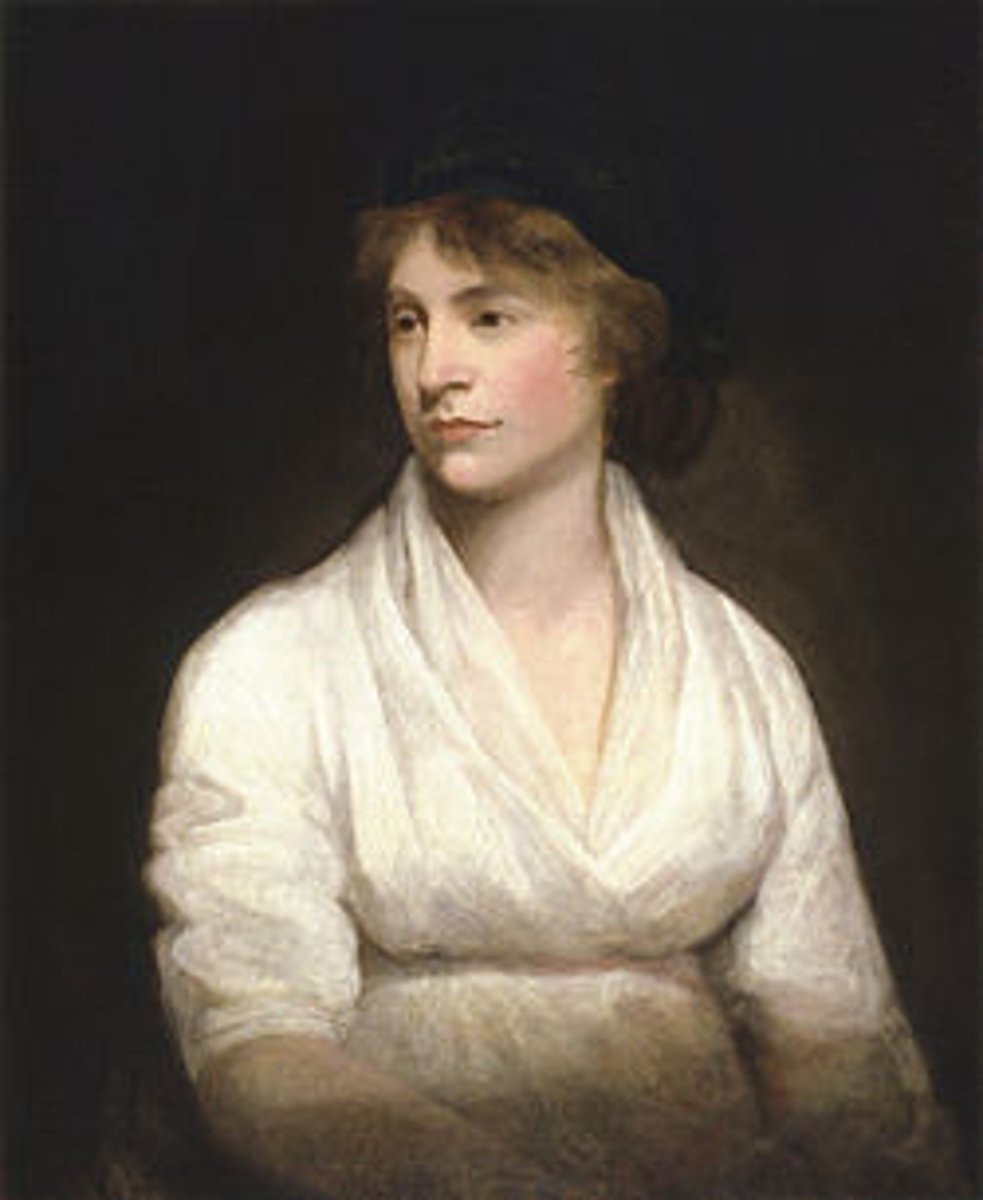
Jonathan Swift (1667-1745)
Author of Gulliver's Travels, a satirical travel novel that illustrates Europeans increasing exposure to people outside of Europe. He also wrote A Modest Proposal, another satire criticizing the British lack of assistance to Ireland in a way that challenged accepted social and economic norms during the Enlightenment.
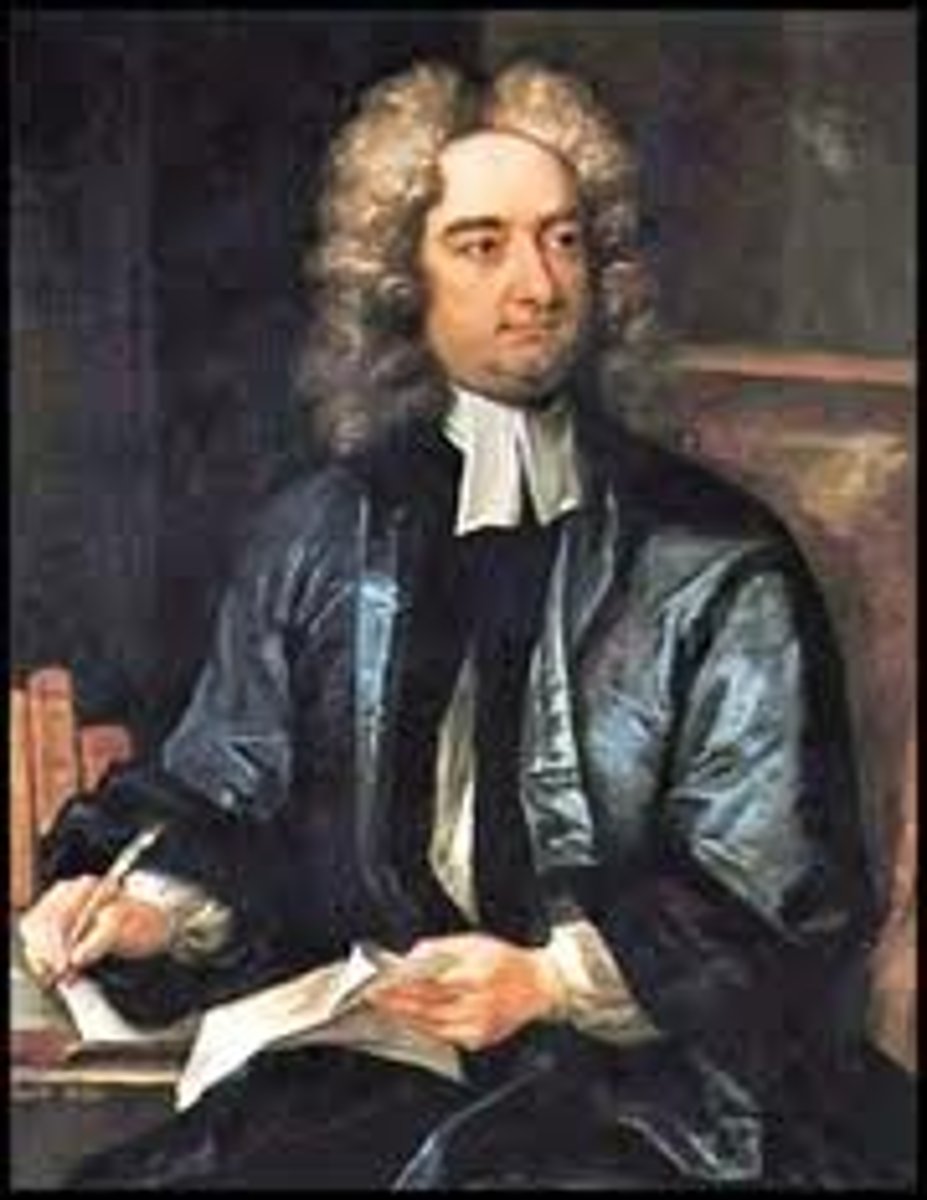
Neoclassicism
Artistic style of the 1700s that reflected enlightenment ideals in subject and composition, including Jacques Louis David who promoted citizenship and political participation, and Mozart who promoted rationalism in his composition.
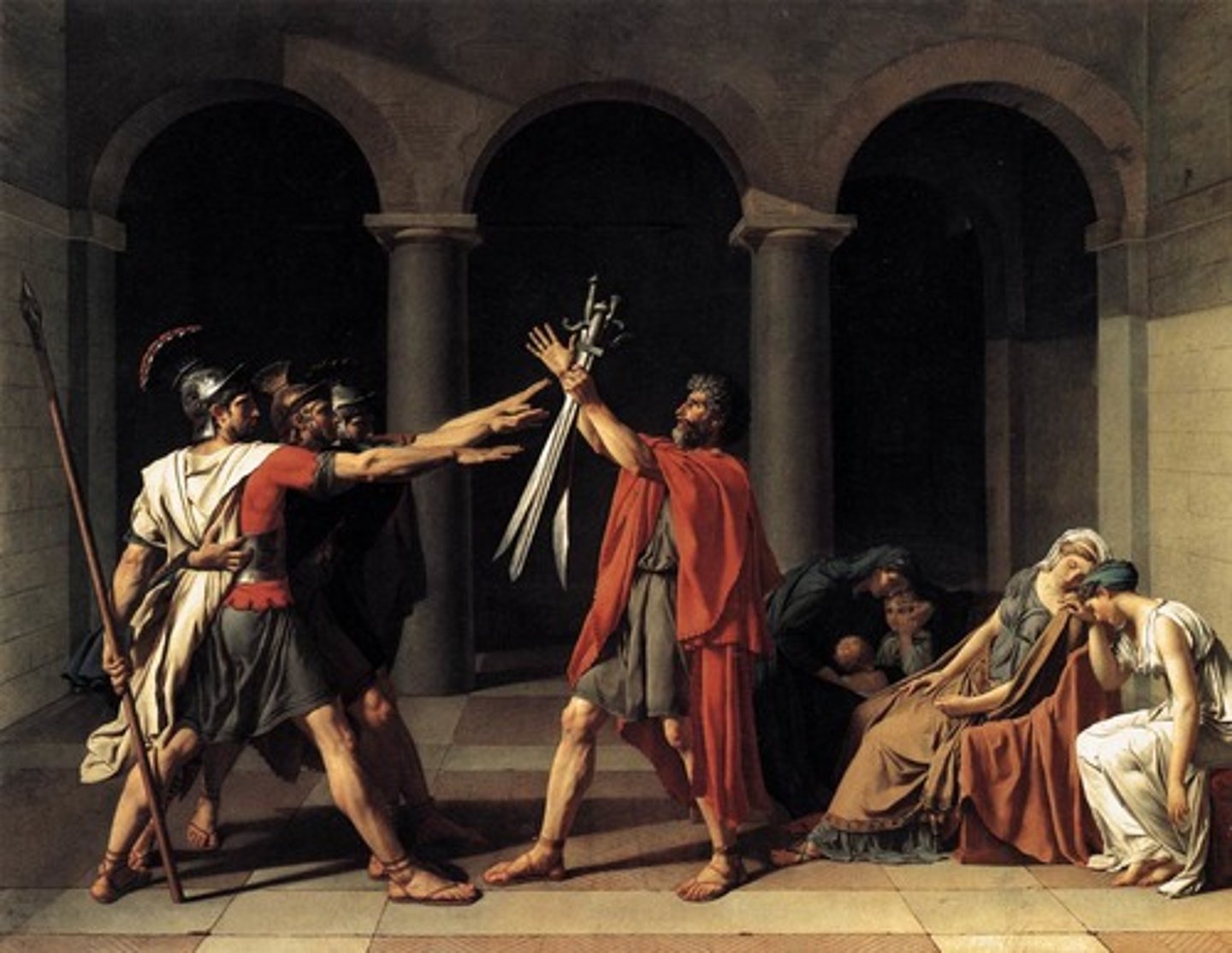
Enlightened despot
Enlightened ruler who is absolute, but bases decisions on some enlightenment ideals, including toleration to Christian minorities and Jews and emphasizing education. Examples include Catherine the Great, Frederick the Great, and Joseph II (not Maria Theresa).
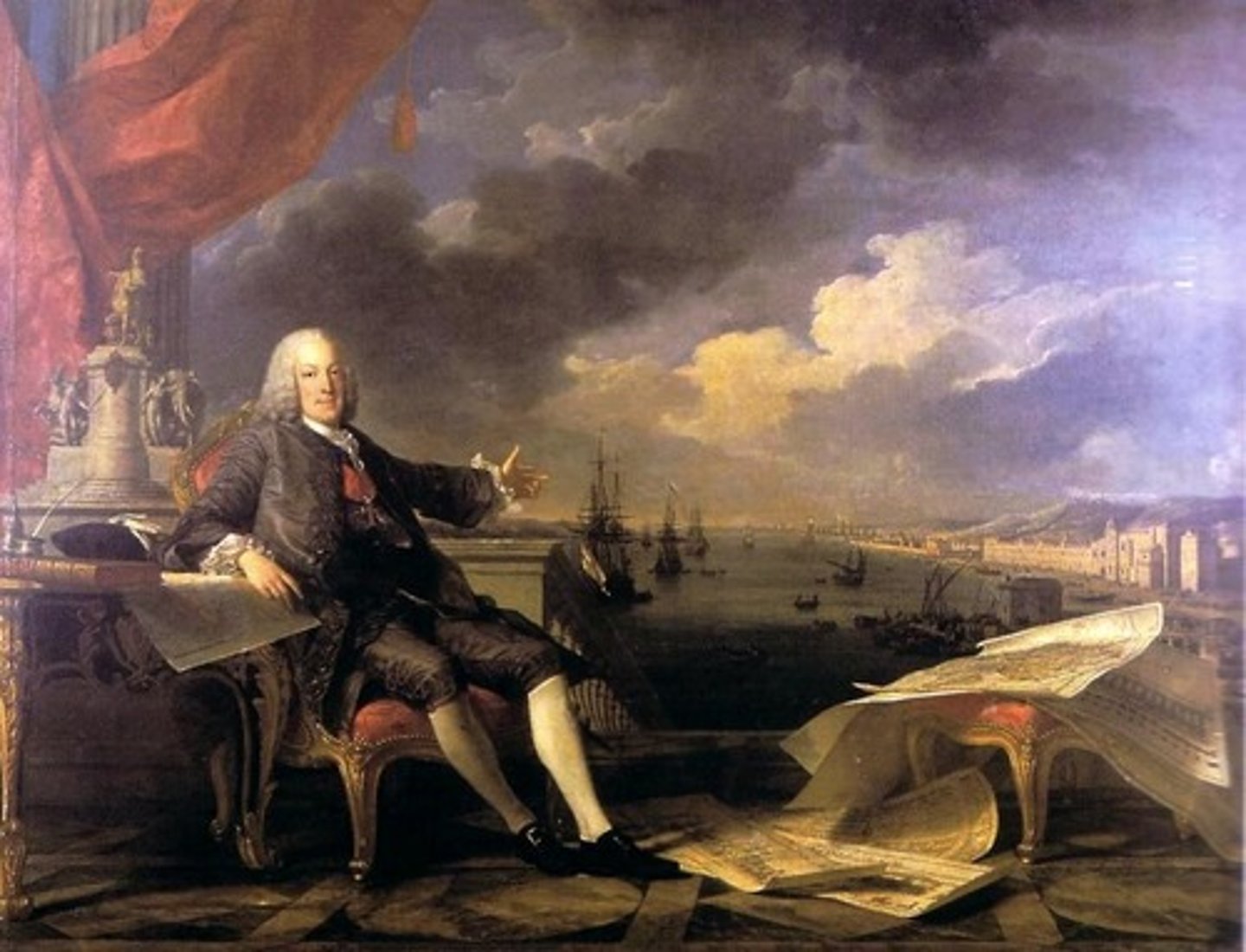
Maria Theresa (r. 1740-1780)
Archduchess of Austria, Hungary, and Bohemia; increased the size of the army and brought the Catholic Church in Austria under state control but is not considered an enlightened despot.
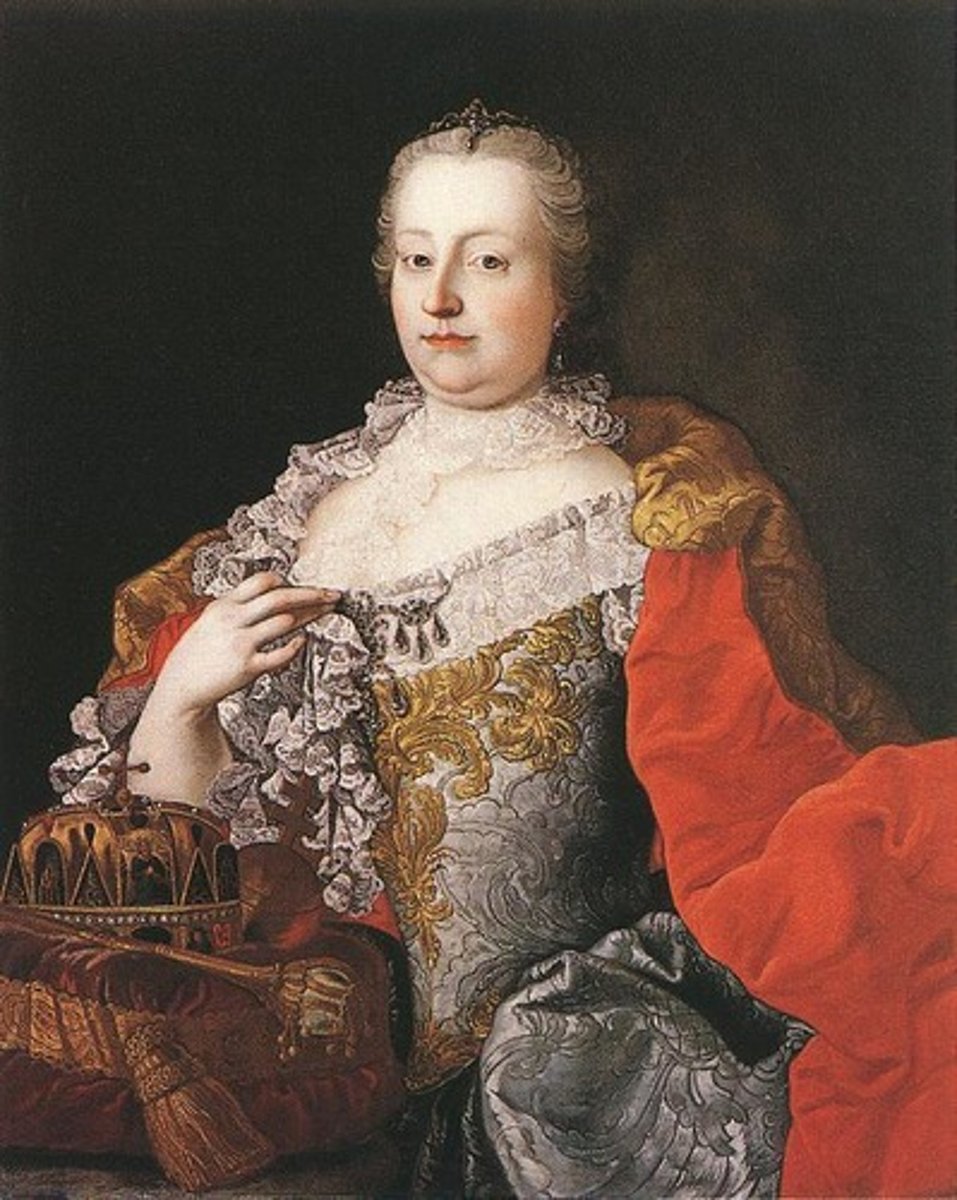
Frederick the Great (r. 1740-1786)
Prussian ruler who expanded his territory by invading the duchy of Silesia and defeating Maria Theresa of Austria in the War of the Austrian Succession and Seven Years' War; considered himself "first servant of the state" — experimented with enlightenment ideals in the second half of his reign.
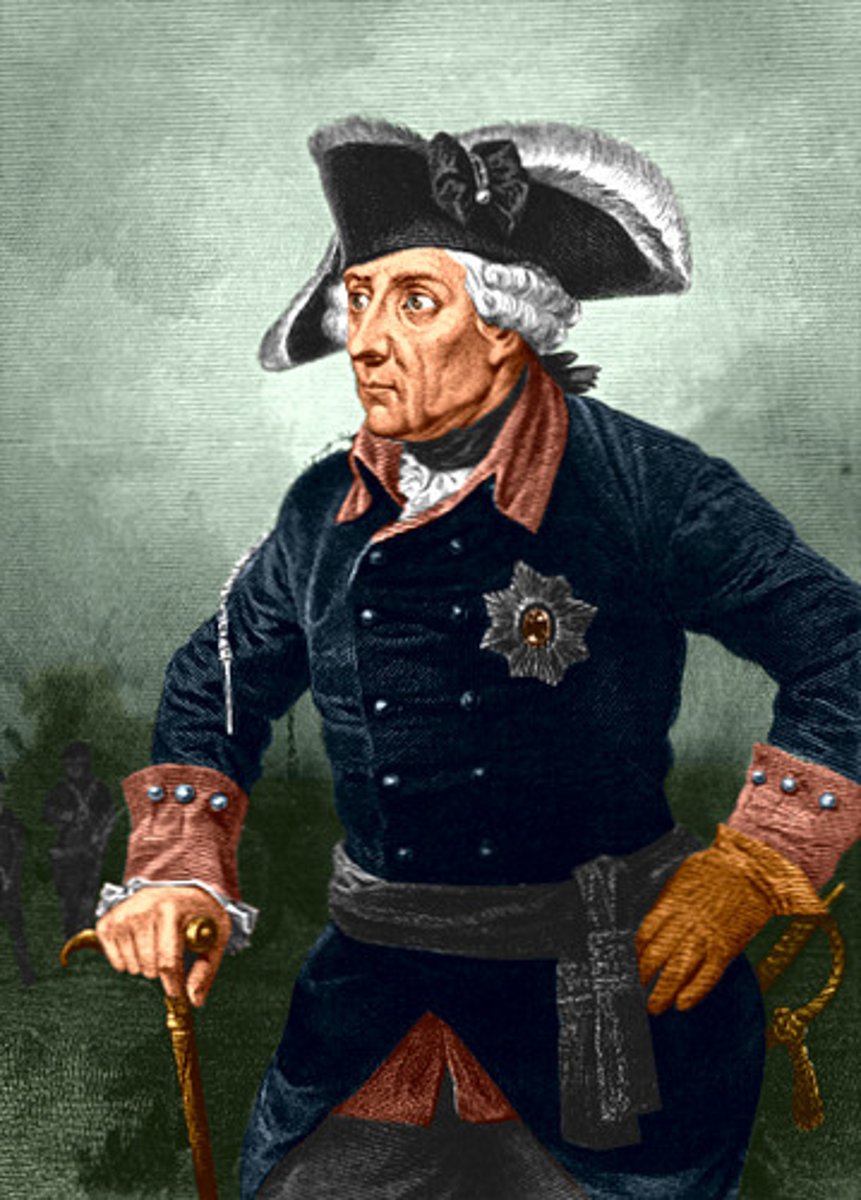
Catherine the Great (r. 1762-1796)
Russian empress who continued the process of Westernization through education, corresponded with Voltaire and encouraged the intellectual development of the Russian boyars, but widened the gap between social classes with that education. She considered improving the lives of serfs until the Pugachev rebellion, and allowed full civil rights for Jews.
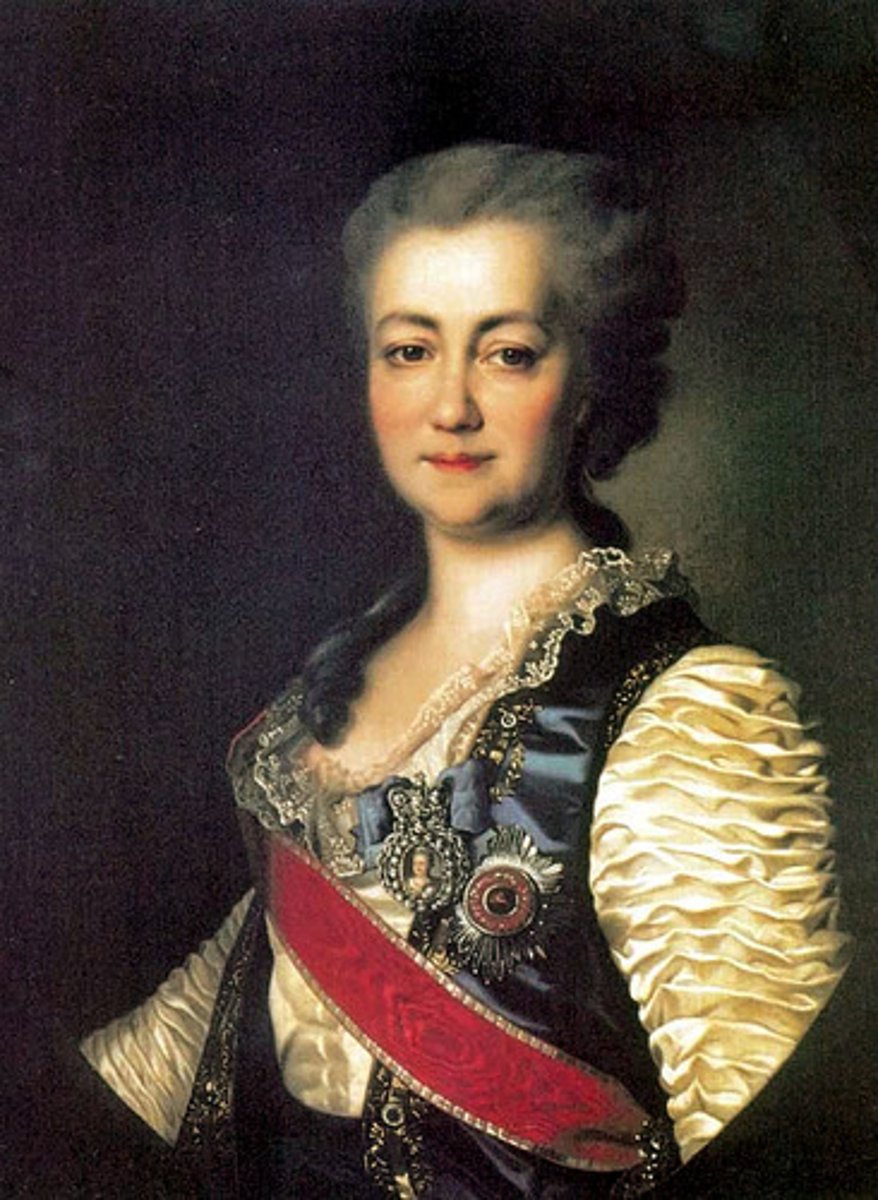
Seven Years' War (1756-1763)
Third major war (Spanish Succession and Austrian Succession) fought in both Europe and the colonies (India, N. America), leading to Britain supplanting France as the greatest European power; also included Austria (siding with France) and Prussia (siding with Britain) over territory in Eastern Europe, demonstrating Prussian dominance.
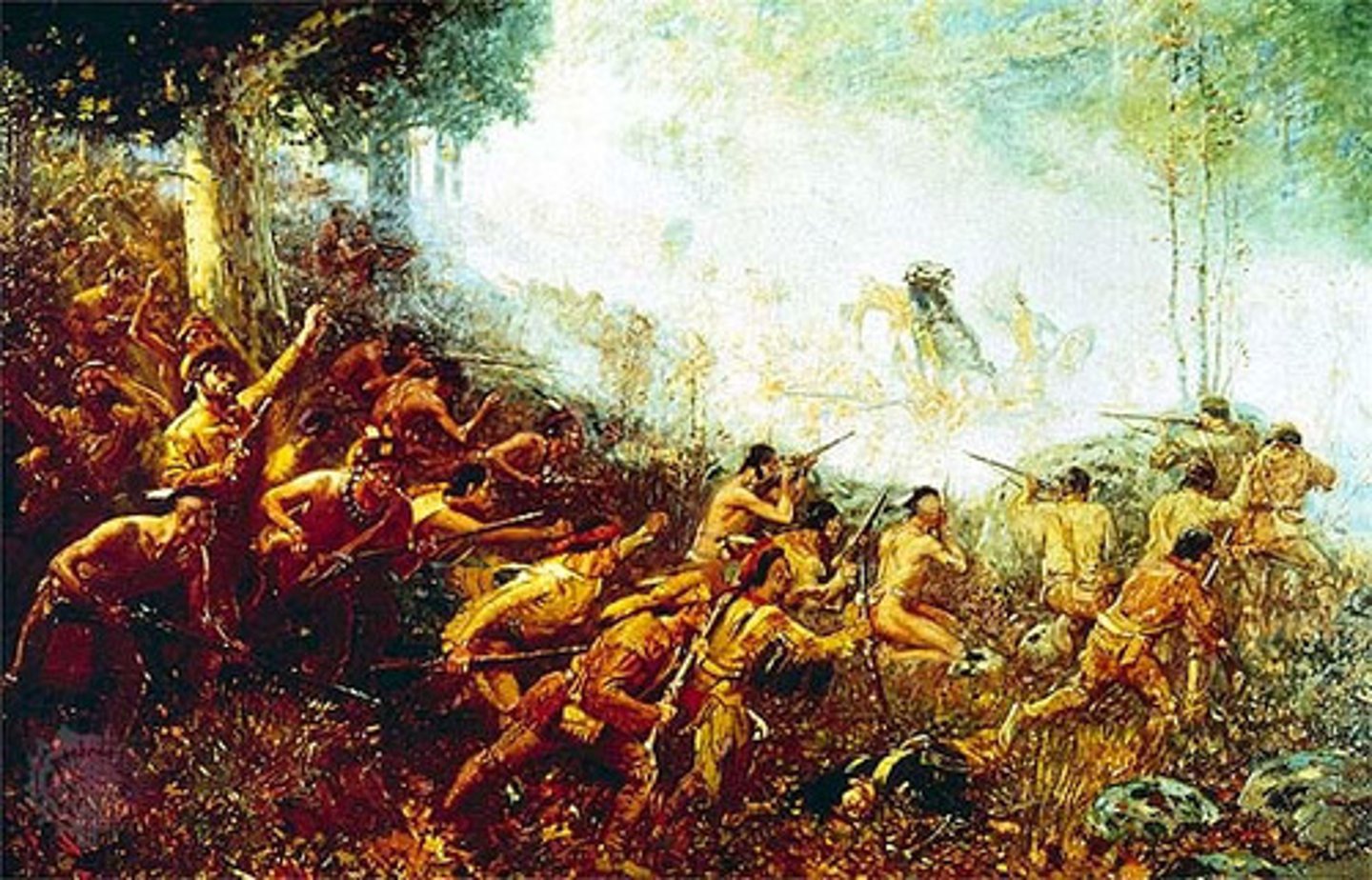
Agricultural Revolution
Period of farming improvement in the 1700s, inspired by the Scientific Revolution, ending the open-field system with common lands and replacing it with crop rotation (through the Enclosure movement in England). Increased food supply led to population growth, as well as the need for fewer farm workers.

Rural proletariat
Transformation of large numbers of small peasant farmers into landless rural wage earners, who worked for a large farm or produced non-farm items in their homes. Those who could not find work migrated to cities, eroding traditional communal values.
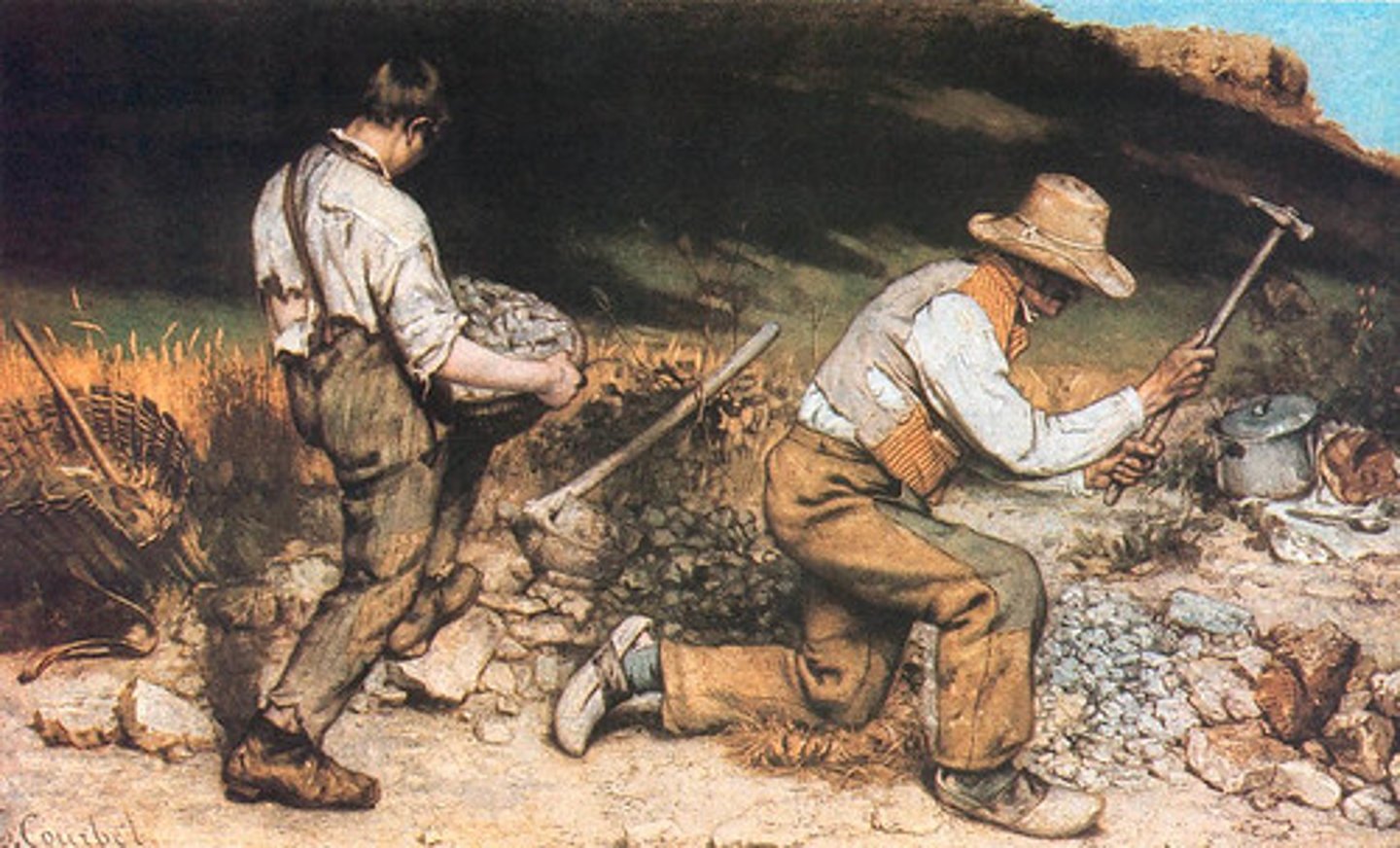
Cottage industry
System of textile manufacturing in which laborers (rural proletariat or urban migrants) worked in homes or workshops through merchant intermediaries or workshop owners; marginalized guilds' hold over production.
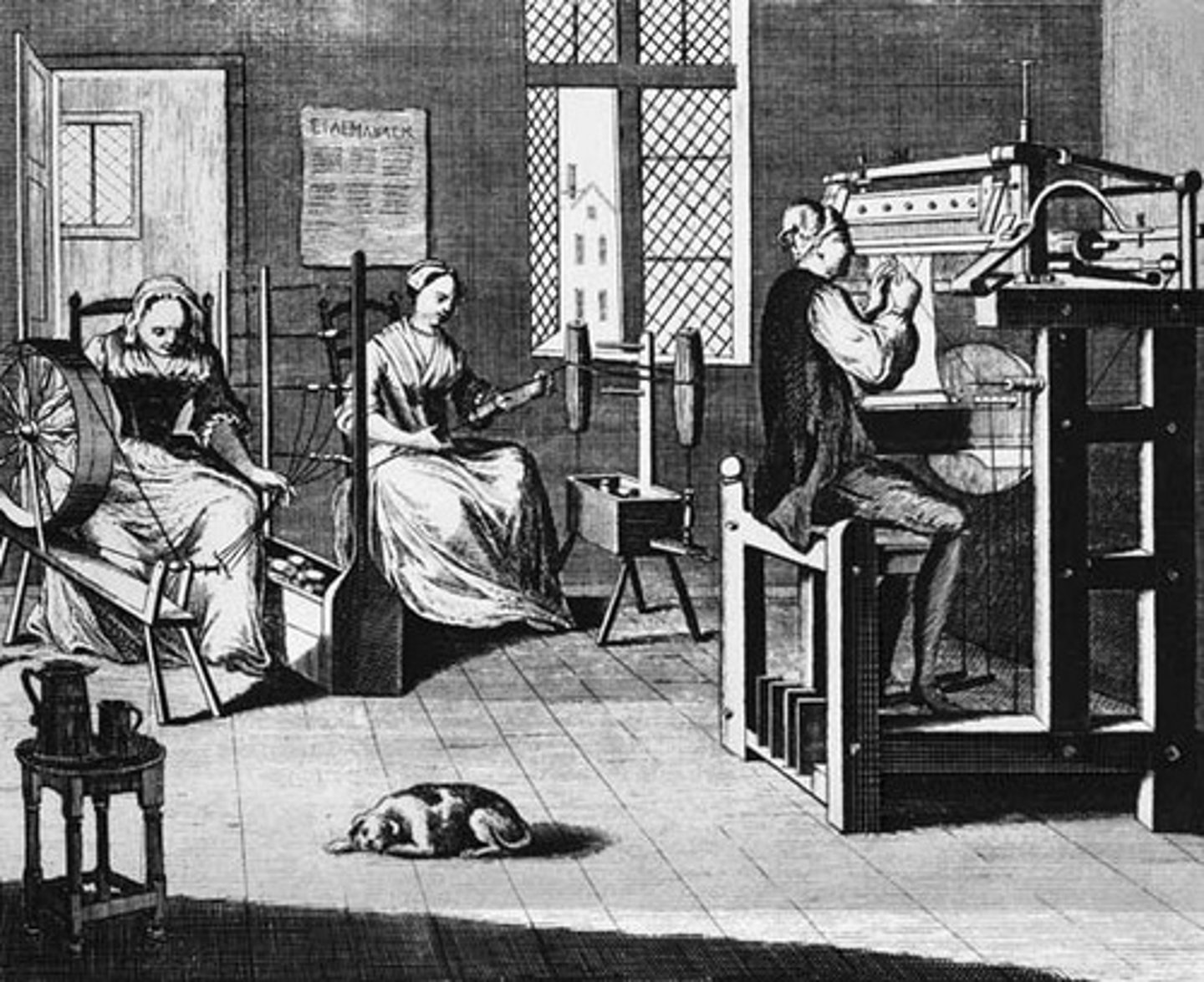
Market economy
Economy based on buying and selling goods, rather than measuring wealth in land or bullion, which led to new financial practices, national banks and expansion of insurance.

Consumer culture
Emphasis in society on buying items that will be quickly used and need to be replaced, including food items like sugar, tea, rum, and silk used for changing fashions. It also led to homes that emphasized privacy and items like porcelain dishes and artists' prints.

Adam Smith
Author of The Wealth of Nations that advanced the theory of laissez-faire. He challenged the practice of mercantilism, espousing the role of the government protecting but not intervening in the operation of the economy, which must be left to run in accord with the natural laws of supply and demand.
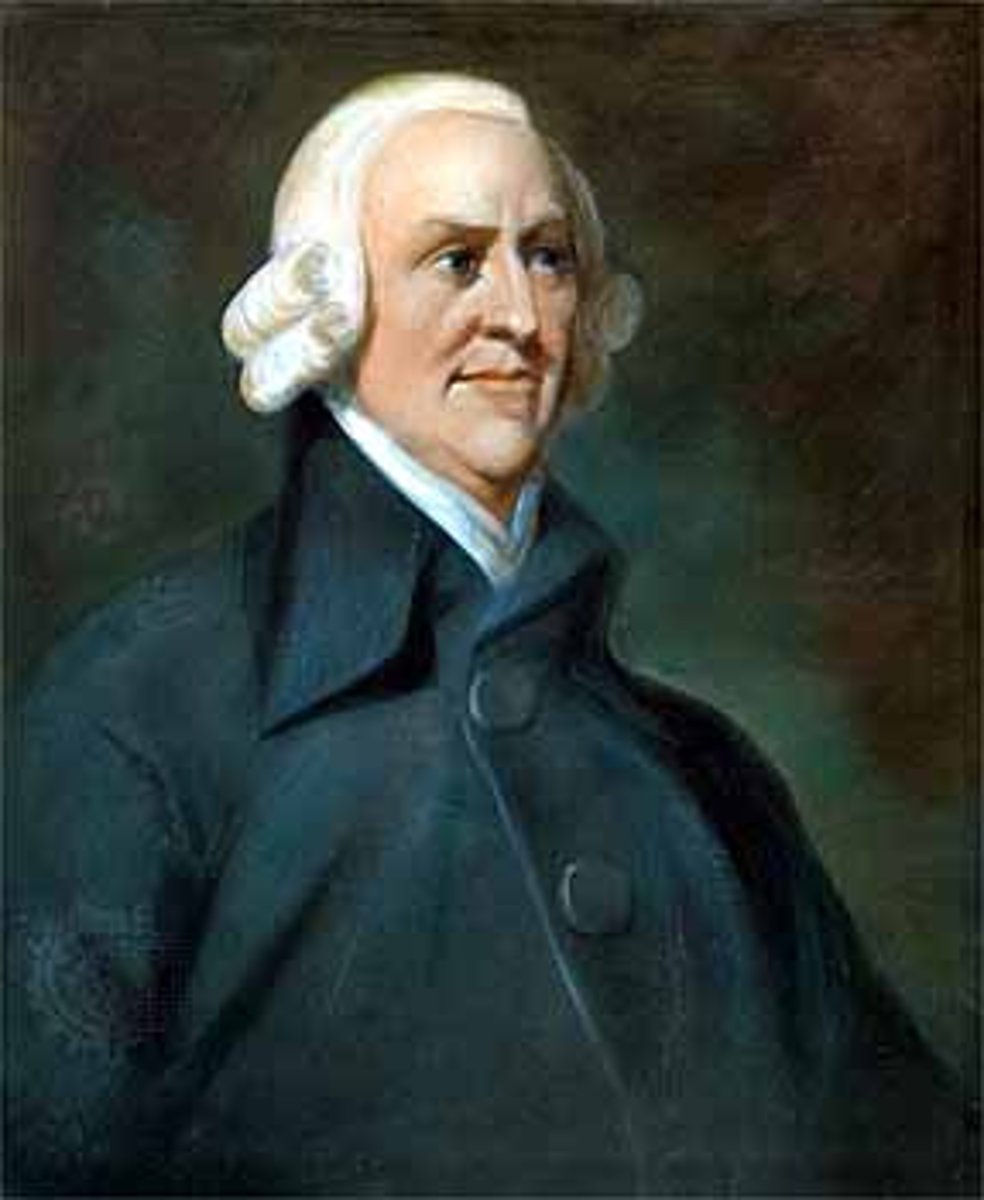
Physiocrats
18th century French economists, led by Francois Quesnay, who believed agriculture, not bullion or capital, was the source of all wealth and that agricultural products should be highly priced, but they also stressed the necessity of free trade.
